
Travel Vaccines and Advice for Thailand

Thailand is a popular destination with its tropical climate, food, culture and beaches.
Thai is the official language of Thailand. But, other smaller languages spoken in rural areas. The primary religion of Thailand is Buddhism and is prevalent in many aspects of culture throughout Thailand. Islam is also practiced in Southern provinces.
Bangkok, Thailand’s capital city, is also the largest city in the country. Bangkok is highly populated with congested streets, modern buildings and temples. It is most known for its nightlife.
Thailand’s other major cities include Ayutthaya, Chiang Mai, and Chiang Rai.
On This Page: Do I Need Vaccines for Thailand? Other Ways to Stay Healthy in Thailand Do I Need a Visa or Passport for Thailand? What Is the Climate Like in Thailand? How Safe Is Thailand? Temples in Thailand What Should I Take to Thailand? U.S. Embassy in Thailand
Do I Need Vaccines for Thailand?
Yes, some vaccines are recommended or required for Thailand. The CDC and WHO recommend the following vaccinations for Thailand: typhoid , cholera , hepatitis A , polio , yellow fever , Japanese encephalitis , chikungunya , rabies , hepatitis B , influenza , COVID-19 , pneumonia , meningitis , chickenpox , shingles , Tdap (tetanus, diphtheria and pertussis) and measles, mumps and rubella (MMR) .
See the bullets below to learn more about some of these key immunizations:
- Typhoid – Food & Water – Shot lasts 2 years. Oral vaccine lasts 5 years, must be able to swallow pills. Oral doses must be kept in refrigerator.
- Cholera – Food & Water – Cholera is rare, but present in Thailand. Vaccination is recommended for travelers at increased risk or visiting areas with active transmission.
- Hepatitis A – Food & Water – Recommended for most travelers.
- Polio – Food & Water – Due to an increase in cases globally, an additional adult booster is recommended for most travelers to any destination.
- Yellow Fever – Mosquito – Required if traveling from a country with risk of yellow fever transmission.
- Japanese Encephalitis – Mosquito – Recommended depending on itinerary and activities. Recommended for extended travel, recurrent travelers and travel to rural areas. Present throughout country, especially northern regions. Most cases from May to October.
- Chikungunya – Mosquito – Thailand is a higher risk region. Vaccination is recommended.
- Rabies – Saliva of Infected Animals – High risk country. Vaccine recommended for long-term travelers and those who may come in contact with animals.
- Hepatitis B – Blood & Body Fluids – Recommended for travelers to most regions.
- Influenza – Airborne – Vaccine components change annually.
- COVID-19 – Airborne – Recommended for travel to all regions, both foreign and domestic.
- Pneumonia – Airborne – Two vaccines given separately. All 65+ or immunocompromised should receive both.
- Meningitis – Direct Contact & Airborne – Given to anyone unvaccinated or at an increased risk, especially students.
- Chickenpox – Direct Contact & Airborne – Given to those unvaccinated that did not have chickenpox.
- Shingles – Direct Contact – Vaccine can still be given if you have had shingles.
- Polio – Food & Water – Considered a routine vaccination for most travel itineraries. Single adult booster recommended.
- TDAP (Tetanus, Diphtheria & Pertussis) – Wounds & Airborne – Only one adult booster of pertussis required.
- Measles Mumps Rubella (MMR) – Various Vectors – Given to anyone unvaccinated and/or born after 1957. One time adult booster recommended.
See the table below for more information:
Specific Vaccine Information
- Typhoid – Typhoid, caused by Salmonella Typhi, spreads via contaminated food and water, especially in areas with poor sanitation. Protect yourself by practicing good hygiene and safe food habits. Vaccination can significantly reduce the risk of typhoid infection, especially when traveling to endemic areas.
- Hepatitis A – Be sure to protect yourself from hepatitis A, a contagious liver infection caused by HAV, through vaccination. The virus spreads through contaminated food, water, and close contact. Along with vaccination, maintaining proper hygiene and avoiding undercooked shellfish are essential for prevention.
- Japanese Encephalitis – Japanese encephalitis is a mosquito-spread viral disease that affects the central nervous system. Prevention is achieved through protective attire and vaccination.
- Chikungunya – Chikungunya, a mosquito-borne virus, can be prevented by avoiding mosquito bites and reducing breeding sites. The chikungunya vaccine provides the best protection.
- Rabies – Rabies is a deadly viral illness transmitted mainly through animal bites. Vaccination is pivotal, with pre-exposure and post-exposure options available to protect against this potentially fatal disease.
- Hepatitis B – The hepatitis B virus leads to liver infection through contact with infected fluids. The most effective safeguard is the hepatitis B vaccine, administered in a series of shots that stimulate the body to produce antibodies, providing long-term immunity. It is crucial for infants and those at an increased risk of exposure.
- Measles, Mumps, Rubella (MMR) – Measles, mumps, and rubella are viral infections that can spread through close contact and respiratory droplets. Vaccination is the most effective way to halt their transmission. The MMR vaccine, given in two doses, strengthens immunity, reducing the chances of contracting and spreading these diseases.
Malaria in Thailand
Malaria in Thailand is primarily found in border provinces near Myanmar, Cambodia, Laos and Malaysia. Rare cases occur in other regions. Chloroquine resistance is present in the country. Atovaquone, doxycycline, mefloquine and tafenoquine are suggested as antimalarials if traveling to the region. Consult with a travel health specialist on which antimalarial will best fit your needs.
Japanese encephalitis vaccines are mandatory for those living in rural areas, hiking or camping. Those that plan to stay longer than a month should consider getting vaccinated.
Various mosquito-borne diseases are present in Thailand. Malaria poses a threat to travelers to some regions of the country. Make sure you are protected with antimalarials.
Medical treatment is adequate and common in urban areas. Healthcare is also available in rural areas, though the health care providers may not speak English.
To find out more about these vaccines, see our vaccinations page . Ready to travel safely? Book your appointment either call or start booking online now .
Other Ways to Stay Healthy in Thailand
Prevent bug bites in thailand.
Safeguard against bug bites by dressing appropriately and using EPA-registered repellents with DEET, picaridin, or OLE. If bitten, cleanse the area, refrain from scratching, and mitigate discomfort with OTC treatments. Seek medical aid for serious reactions.
Food and Water Safety in Thailand
When traveling, ensure food safety by adhering to CDC recommendations, which include eating fully cooked foods, avoiding raw seafood, and selecting reputable dining places. Safely drink bottled beverages, avoiding ice in uncertain water sources, and consume alcohol in moderation. Prevent travelers’ diarrhea through hand hygiene and avoiding street food in unsanitary areas.
Altitude Sickness in Thailand
Altitude sickness, characterized by symptoms like headache and nausea stemming from oxygen deprivation at high elevations, can be prevented through gradual ascent, hydration, and medication like acetazolamide. Should AMS symptoms arise, immediate descent to lower altitudes, rest and seek medical attention.
Infections To Be Aware of in Thailand
- Avian/Bird Flu – Avian flu, also known as bird flu, is a contagious virus that affects birds and can spread to humans. Preventing it involves vaccination of poultry, strict biosecurity on farms, safe handling and cooking of poultry, surveillance for outbreaks, and raising public awareness.
- Dengue – Dengue fever is a mosquito-borne illness with symptoms ranging from mild to severe, including high fever and pain. The CDC emphasizes prevention through avoiding mosquito bites by using repellents and removing standing water. Treatment focuses on symptom relief and hydration, avoiding certain pain relievers that can worsen bleeding risks.
- Leishmaniasis – Leishmaniasis is transmitted by sand flies’ bites. To prevent its spread, individuals should use insect repellents, wear long-sleeved clothing and limit outdoor activities during sand fly activity periods. Eliminating breeding sites and early diagnosis are crucial for effective prevention.
- Zika – Zika, a mosquito-borne virus, can cause mild to severe symptoms and poses significant risks during pregnancy. Prevention strategies include using insect repellent, safe sex practices, and avoiding travel to affected areas.
Do I Need a Visa or Passport for Thailand?
U.S. citizens staying in Thailand for 30 days or less do not need a visa. But, their passport must be valid for at least six months from the date of entry.
Sources: Embassy of Thailand and U.S. State Department
Always carry your passport and visa with you to avoid arrest in Thailand.
What Is the Climate Like in Thailand?
Thailand is a country with a tropical climate that is hot and humid throughout the year. The temperature ranges from 25 to 35 degrees Celsius during the day. The weather can be different depending on where you are in Thailand. Here are some popular tourist destinations:
- Bangkok : Bangkok is hot and humid all year round. It rains a lot, especially between May and October.
- Phuket : Phuket is a tropical place. It can rain a lot from May to October. The temperature is usually between 75 and 90 degrees.
- Chiang Mai : Chiang Mai has a tropical climate with three different seasons: cool, hot, and rainy. The cool season runs from November to February, the hot season from March to May, and the rainy season from June to October.
- Pattaya : Pattaya is hot and humid all year round. It rains a lot, especially between May and October.
- Koh Samui : Koh Samui is an island that has two different seasons: dry and rainy. The dry season runs from December to April, and the rainy season from May to November.
Remember that weather can change, so always check the forecast before you travel.
How Safe Is Thailand?
In the past few years, there have been periodic terrorist attacks at popular tourist attractions in Thailand,. This remains a high-concern today. There is an ongoing risk of terrorist attacks in Thailand.
The National Council for Peace and Order (NCPO) has placed strict restrictions on media and have banned political gatherings. Tourists may be detained by the military for openly criticizing the NCPO.
Pick-pocketing is common in Thailand as is sexual violence in bars and isolated areas.
Do not use your passport as collateral. Many rental places are scams.
In Southern Thailand (Yala, Pattani, Narathiwat, and Songkhla), martial law is still prevalent. Tourists are cautioned against traveling to these areas.
Temples in Thailand
Avoid mosquitoes and other bugs, insect-borne disease are a threat throughout the world., keep the bugs away with passport health’s repellent options .
There are over 40,000 temples in Thailand, making them popular tourist attractions. These temples range in age and architecture and many are still in use today.
Wat Pho, located in Bangkok, is one of the most popular due to its size and attractions within. It is one of the largest complexes in the country, holding many buildings. Wat Pho houses the largest reclining Buddha and largest collection of Buddha images.
The site is also headquarters for the teaching and preservation of Thai medicine. There, tourists can find two massage schools and pavilions.
You must take off your shoes to enter and you purchase coins to put into bowls for good luck. All the money goes towards renovating and up-keeping the site.
What Should I Take to Thailand?
Thailand is a hot and humid country, it’s important to pack lightweight and comfortable clothing. You should bring comfortable shoes for walking, sun protection like sunscreen, hats, and sunglasses to avoid the strong sun rays. Mosquitoes are common in Thailand, so it’s important to bring insect repellent to avoid bites.
Thailand uses different types of electrical outlets, so it’s recommended to bring a universal adapter. It’s also recommended to pack any prescription medication and over-the-counter medications such as pain relievers, anti-diarrhea medication, and motion sickness medication.
Thailand is a cash-based society, so it’s important to bring cash and credit cards. If you plan to visit the beaches or go swimming, don’t forget to pack swimwear and a beach towel. When visiting temples or other religious sites, make sure to dress respectfully, covering your shoulders and knees, and avoid wearing revealing clothing in public places.
Don’t forget to bring your passport, visa (if required), travel insurance, and any other important travel documents.
U.S. Embassy in Thailand
All Americans visiting Tunisia should register online with the U.S. Department of State before departure. This will inform the office of your travel plans within the country and will allow them to reach out in the case of an emergency or evacuation.
Once in Thailand, the information for the U.S. Embassy is:
U.S. Embassy Bangkok 95 Wireless Road Bangkok 10330 Thailand Telephone: + (66) (2) 205-4049, 02-205-4049 (within Thailand) Emergency After-Hours Telephone: +(66) (2) 205-4000, 02-205-4000 (within Thailand) Fax: +(66) (2) 205-4103, 02-205-4103 (within Thailand) Email: [email protected]
If you have any questions about traveling to Thailand or are wondering what shots you may need for your trip, schedule an appointment with your local Passport Health travel medicine clinic. Call us at or book online now! and protect yourself today.
Customer Reviews
Passport health – travel vaccines for thailand.

- Records Requests
- Passport Health App
- Privacy Center
- Online Store
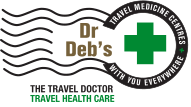
Our Address
5th Floor, 247 Adelaide St, Brisbane
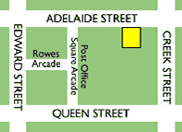
- 07 3221 9066
- Our Location
- Clinic Access
- Before You Travel
- Existing Patients
- About Dr Deb
- Make an Appointment
Recent Blog Posts
Mpox and risk to Travellers

Understanding Japanese Encephalitis: A Travel Health Advisory
Dengue - Day biting Mosquitoes
About Dr. Deb
Dr Deb Mills has a passion for medicine and travel. She is the medical director of Dr Deb THE Travel Doctor, and has been working in travel medicine for over 25 years. She is one of the pioneers of Travel Medicine in Australia. This means she and her team have the expertise necessary to ensure you get the best travel medicine care possible. For more Travel health advice and to obtain your vaccines before you travel, visit our travel clinic in Brisbane.
Quick Links

© 2024 Dr. Deb’s | All Rights Reserved | Privacy Policy | Website Terms and Conditions | Governing policy | Sitemap

- Online Appointment
- Consular Service
- Ambassador to Australia
- About Thai Embassy
- List of Thai Ambassadors to Australia
- Embassy list of Staff
- Entry to Thailand
- Events & Public Holidays
- Royal Thai Embassy
- Thai Offices in Australia
- Royal Thai Honorary Consulate in Australia and Papua New Guinea
Requirements for Entering Thailand under Phuket Sandbox Programme
1. Eligible Travellers
1.1 Travellers must be fully vaccinated against COVID-19 with a vaccine approved by Thai Ministry of Health and WHO for no less than 14 days prior to departure, except travellers under the age of 18 accompanied by parents.
The list of approved vaccines include:
(1) CoronaVac (Sinovac Biotech Ltd.)
(2) AstraZeneca or Covishield (AstraZeneca & University of Oxford / SK Bioscience (Korea) / Siam Bioscience / Serum Institute of India (SII))
(3) Pfizer – BioNTech Covid-19 vaccine or Comimaty (Pfizer Inc, &BioNTech)
(4) Janssen or Janssen/Ad26.COV2.5 (Johnson & Johnson Service, Inc.)
(5) Moderna (Moderna Inc.)
(6) Sinopharm vaccine or Covilo (Sinopharm Co., Ltd.)
(7) Sputnik V (Gamaleya Research Institute of Epidemiology and Microbiology)
1.2 Obtain a valid health insurance that covers medical expenses including treatment relating to COVID-19 with a minimum of 100,000 USD throughout the period of stay in Thailand.
For more information about health insurance, please visit https://covid19.tgia.org/
1.3 Obtain a confirmed and fully paid booking of stay at SHA+ hotels in Phuket for 7 days (List of SHA+ hotels can be found at entrythailand.go.th or shathailand.com
1.4 For travellers wishing to stay in Phuket less than 7 days, they must obtain air tickets with a firm departure date from Thailand, together
with proof of fully paid booking of SHA+ hotel and proof of payment for RT-PCR COVID-19 test during the entire stay in Thailand.
1.5 Obtain proof of payment for RT-PCR COVID-19 test during 7 days of stay in Thailand. The traveller must fully pay the said expenses with chosen hotel of stay.
During 7 days in Phuket, the travellers must take 2 RT-PCR tests (first test upon arrival at the airport; second test on day 6-7)
1.6 Must stay in Phuket for no less than 7 days before travelling to other provinces in Thailand.
1.7 For travellers staying in Phuket less than 7 days, they must leave Thailand via Phuket only.
2. Procedure for Certificate of Entry (COE) Application under Sandbox Phuket
2.1 Visit: coethailand.mfa.go.th–
2.2 Select – “Royal Thai Embassy, Canberra” if you reside in Australia (VIC, QLD, WA, SA, TAS, NT, ACT), Papua New Guinea, Fiji, Solomon Islands, Tonga, Vanuatu and Kiribati
or – “Royal Thai Consulate, Sydney” if you reside in New South Wales (NSW)
2.3 Select category of permitted persons to enter Thailand (for non-Thai nationals)
2.4 Select “Sandbox Programme” and select “Phuket” under Sandbox destination
2.5 Fill out required details and upload the following documents
(1) Copy of bio-data page of your passport
(2) Valid visa (for non-Thai nationals)
(3) Valid health insurance that covers medical expenses including treatment relating to COVID-19 with a minimum of 100,000 USD throughout the period of Stay in Thailand.
(4) Vaccine Certificate
(5) Proof of confirmed and fully paid booking of stay at SHA+ hotels in Phuket (SHABA Certificate)
(6) Proof of payment for RT-PCR COVID-19 test during 7 days of stay in Thailand
(7) Air ticket
3. Obtain medical certificate (RT-PCR) with a laboratory result indicating that COVID-19 is not detected and issued no more than 72 hours before departure.
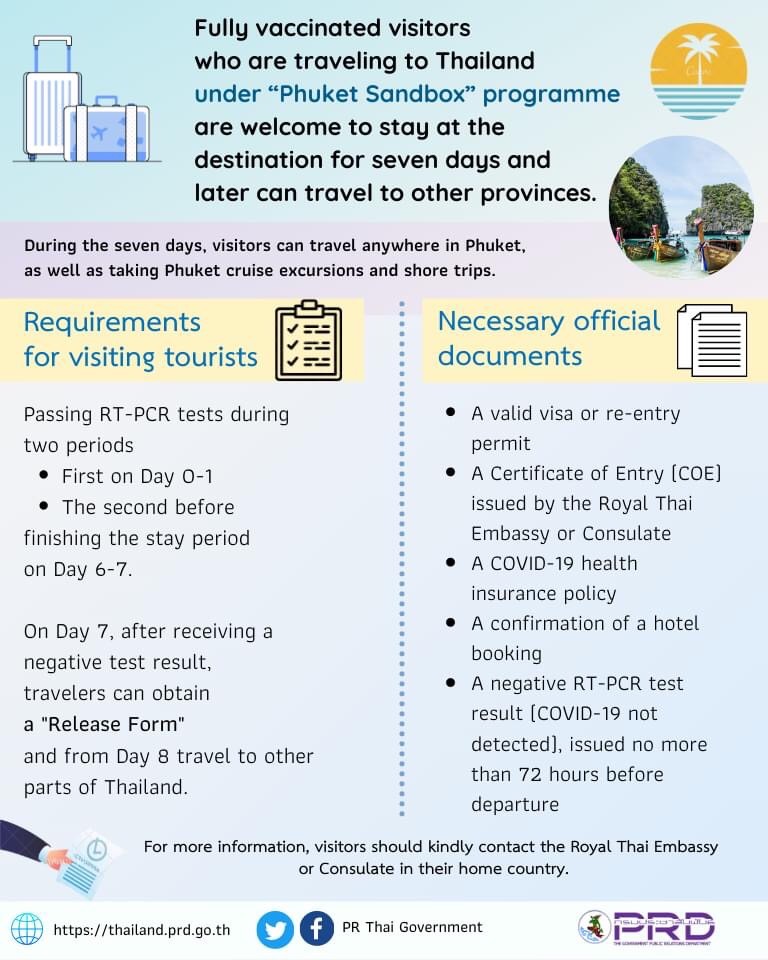
4. Arrival Requirements for Phuket Sandbox visitors who wish to apply for a Visa on Arrival (VOA) NEW

Tourists return to Thailand as Phuket reopens to vaccinated travelers

Jul 1, 2021 • 3 min read

Phuket has opened to international visitors under the Phuket Sandbox program © Sirachai Arunrugstichai / Getty Images
After months of border closures, Thailand welcomed its first international tourists today to the island of Phuket , as part of the so-called " Phuket Sandbox ". The Sandbox is the only entry point into Thailand for non-essential travel, providing visitors who stay for more than 14 days the opportunity to travel to other parts of Thailand.
The first flight of international tourists arrived into Phuket today under the Sandbox model. As per the program's conditions, fully vaccinated visitors from "low- or medium-risk" countries are permitted to enter Phuket without quarantine. The Thailand Tourism Authority (TAT) says arrivals must be fully vaccinated, and must have tested negative not more than 72 hours before arrival.
Travelers under the Phuket Sandbox program are required to stay in a hotel approved by the country’s Safety & Health Administration for the first seven nights. While on Phuket, visitors are not required to quarantine and are free to leave their accommodation and travel around the island visiting beaches, restaurants and entertainment venues with few restrictions.

Masks are required outdoors and visitors are required to take a second test on day six or seven if they are staying less than a week. Visitors staying a fortnight or longer are required to take two additional tests on day six or seven and again on day 13 or 14. Visitors are also required to register at a government website and use an app that tracks their movements. After 14 nights on Phuket, they are free to leave the island to travel to other points in Thailand.
In preparation for tourists, many of Phuket’s pandemic restrictions have been lifted, and the island’s tourist-oriented businesses have been allowed to operate more or less normally. More information on the Phuket Sandbox model can be found here .

The Phuket Sandbox is the first stage in Thailand's border reopening plans. Although currently experiencing a surge in the rate of infections, particularly of the Delta variant, the country is moving ahead with plans to reopen its borders more widely this year. Speaking at a press conference in June, Thailand's prime minister Prayuth Chan-ocha said fully vaccinated visitors must be allowed entry "without quarantine or other inconvenient restrictions," the Associated Press reported .
While he acknowledged that reopening comes with a risk, particularly as the third wave of the pandemic has not yet subsided in Thailand, Chan-ocha said: "I think when we take into consideration the economic needs of the people, the time has come for us to take that calculated risk." Details are still scant but the Associated Press has reported that the borders could potentially open by mid-October.
The tourism-dependent country is reeling from an almost total lack of visitors over the previous year, and the government is keen to reverse the country’s economic stagnation. Mass vaccination began in June at centers across the country, with the aim of vaccinating 50 million people, or about 70% of the entire population, by the end of the year.
This article was first published on April 2, 2021 and last updated by Sasha Brady on July 1, 2021.
You might also like:
Exploring Phuket Town: the Thai holiday island’s cultural capital The best time to travel to Thailand Can the world’s most famous backpacker strip survive COVID-19?
This article was first published Mar 26, 2021 and updated Jul 1, 2021.
Explore related stories

Sep 22, 2024 • 6 min read
Luxuriate in the second annual ranking of The World’s 50 Best Hotels for 2024.
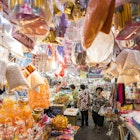
Sep 16, 2024 • 10 min read

Aug 30, 2024 • 9 min read

Aug 28, 2024 • 6 min read

Aug 26, 2024 • 19 min read

Aug 12, 2024 • 12 min read

Aug 7, 2024 • 8 min read

Aug 5, 2024 • 6 min read

Jul 25, 2024 • 7 min read

Jul 25, 2024 • 10 min read
- Skip navigation
- Find a branch
- Help and support
Popular searches
- Track a parcel
- Travel money
- Travel insurance
- Drop and Go
Log into your account
- Credit cards
- International money transfer
- Junior ISAs
Travel and Insurance
- Car and van insurance
- Gadget insurance
- Home insurance
- Pet insurance
- Travel Money Card
- Parcels Online
For further information about the Horizon IT Scandal, please visit our corporate website
- Vaccinations needed for Thailand
Some vaccinations for Thailand are recommended and some are mandatory in certain circumstances. It’s important to know which vaccinations or injections for Thailand you need to get before you leave home.
Posted: 22/1/2022 | By Amanda Duffy

Thailand is a hugely popular destination for British holidaymakers, with over a million people travelling there annually. It has a tropical monsoon climate and a hugely diverse geography, including a long coastline, dense rainforest, paddy fields and high mountain ranges. Unfortunately, it also has a few health risks that we don’t have in Britain, and that means it’s vital that you take sensible medical precautions before you travel .
Some vaccinations for Thailand are recommended, and some are mandatory in certain circumstances, so it’s important to know what vaccinations or injections for Thailand you need to get before you leave home.
If you're planning a trip to Thailand, consider a Post Office travel insurance policy.
What vaccinations do i need for thailand.
Check the Foreign, Commonwealth and Development Office (FCDO) travel advice for Thailand, which includes entry requirements such as vaccinations. It’s recommended that travellers to Thailand have jabs for tetanus and hepatitis A, possibly for yellow fever too, and they should also take additional precautions depending on which regions they’re visiting and the activities they plan to do.
Contracted through the contamination of cuts, burns and wounds, is a potential issue across the region, and in places where medical care is limited. An infection can be an unpleasant experience causing a tightening of the muscles in the body, which can than affect swallowing and breathing. A total of five injection doses of the tetanus vaccine are recommended for life in the UK and boosters are recommended if you haven’t had one for ten years.
Hepatitis A
A liver infection spread through contaminated water and food that causes high temperatures, joint pain, nausea, jaundice and itchy skin among other symptoms. It is prevalent anywhere sanitation is poor and has no specific treatment. Jabs for hepatitis A can be given in one dose.
Yellow fever
Vaccination against yellow fever is mandatory for all travellers over nine months of age arriving from any countries with a risk of yellow fever – even if they’ve only transited (for more than 12 hours) through the airport. Remember to double-check your full travel itinerary before you leave and carry your certificate to prove you’ve been vaccinated.
Is there a risk of malaria in Thailand?
Mosquitoes are an ongoing problem in Thailand, especially for anyone spending any time in rural areas and lowland paddy fields where they breed. Malaria is the most well known and serious condition spread by mosquitoes, causing severe fever and sometimes even proving fatal – with some symptoms developing as long as a year after exposure.
In areas where malaria is a risk you should avoid mosquito bites by covering up with clothing such as long sleeves and long trousers, especially after sunset, use insect repellents on exposed skin and, when necessary, sleep under a mosquito net. A course of antimalarial tablets such as Atovaquone, Proguanil or Doxycycline is also advised for anyone spending significant time in any affected regions.
What about other diseases?
Other mosquito borne viruses present in Thailand include Dengue Fever , which causes fever, headache, severe joint and muscular pain, and the Zika virus , which is relatively mild but can have serious side effects for pregnant women. Both diseases are more common in urban areas than rural, and there is no effective vaccination or jab for either – with the best method of prevention to try and avoid being bitten.
Mosquitoes also spread the brain disease Japanese encephalitis and, though unlikely, vaccination should be considered for anyone spending a long period in any of Thailand’s mosquito hotspots. Cholera may also be an issue, and this can be vaccinated against too if you’re planning on spending any serious amount of time in the rural areas.
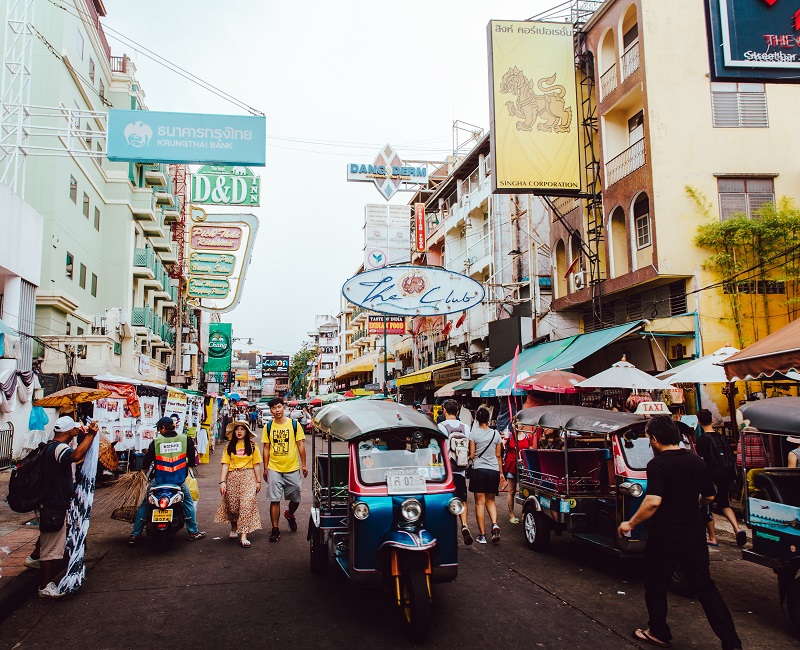
How do I get vaccinations for Thailand?
Anyone requiring injections for Thailand should visit their GP six to eight weeks before they leave. They should also check for any medical updates on the official government website .
Many travel vaccinations are free on the NHS , including those for tetanus, diphtheria, polio, typhoid, hepatitis A and cholera so be sure to take advantage of this and get your free travel jabs.
High street chains like Boots and Superdrug also offer vaccination services but the costs can vary greatly. The International Society of Travel Medicine has clinics in 90 countries and provides pre-travel immunisation and counseling.
It’s important to be aware that not having the required inoculations could invalidate a travel insurance policy
Stay #TravelAware
Thailand is one of the UK's favourite travel destinations but which of these items can you not take into the country?
Did you correctly guess which item isn't allowed into Thailand?
Want to learn about more local laws for any country across the world? Visit www.gov.uk/foreign-travel-advice to stay in the loop with travel advice.
Interested in travel insurance?
Other travel products.
Order foreign currency online or in selected branches. Pick up in any branch or get it delivered to your home.
One prepaid Mastercard™ that stores up to 22 currencies.
Get your passport application right the first time. We can even complete and submit it for you digitally.
This might interest you
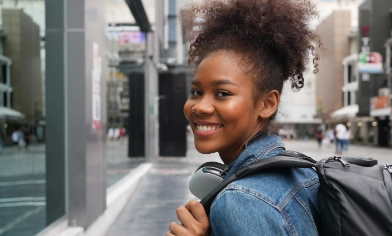
Exploring the globe can be scary, but there’s so much to find at the edge of ...
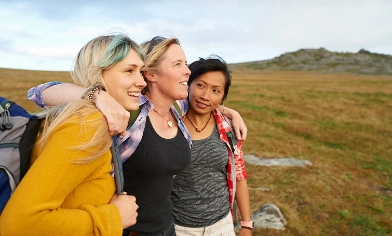
Adventurous holidays can take many forms, from action-packed itineraries in ...
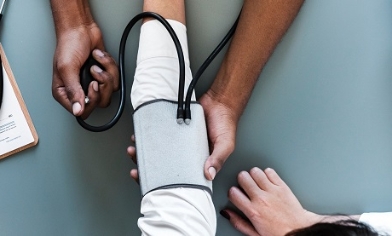
Travelling with high blood pressure is fine – but it’s important to make sure ...

You should be able to get the right cover to travel abroad if you’re diabetic, ...

If you're travelling to an EU country from the UK, make sure you take a Global ...
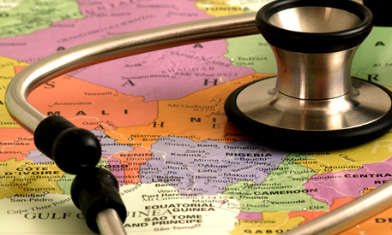
There’s no better feeling than planning an amazing trip to an exotic ...

It's a proud feeling when children turn eighteen and start holidaying on their ...
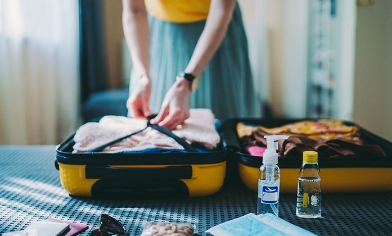
So, you’ve booked your flights, accommodation and activities. What next?

With festivals overseas becoming the new norm, festivalgoers need to do a bit ...
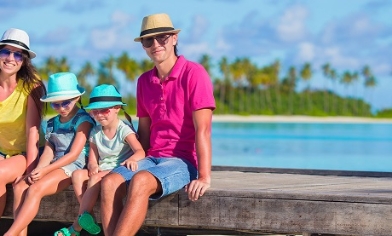
If you're travelling abroad as a family, it makes sense to take out insurance ...
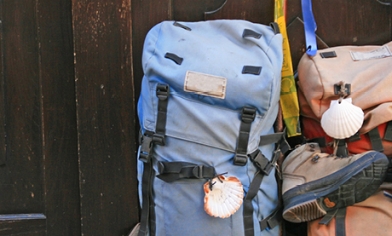
Going backpacking is one of life’s great adventures. But before you set off ...
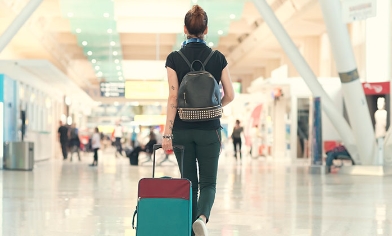
Do you need travel insurance for your trip? Is travel insurance worth it? And, ...

Fancy trekking in a remote Asian rainforest? A wild time in New York? Flying ...

The opportunities to combine business and leisure have never been greater. You ...
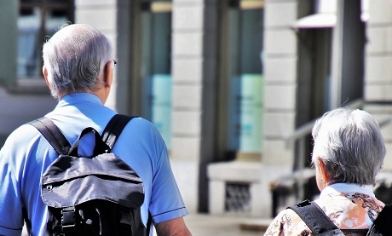
As you get older, being able to go where you want when you want is all part of ...

Before your little bundle of joy arrives, you may be considering taking a ...

If you're living with cancer but love to travel, can you get travel insurance ...
2024 U.S. Election September 23, 2024
Returning your absentee ballot from overseas.
- Travel Advisories |
- Contact Us |
- MyTravelGov |
Find U.S. Embassies & Consulates
Travel.state.gov, congressional liaison, special issuance agency, u.s. passports, international travel, intercountry adoption, international parental child abduction, records and authentications, popular links, travel advisories, mytravelgov, stay connected, legal resources, legal information, info for u.s. law enforcement, replace or certify documents.
Before You Go
Learn About Your Destination
While Abroad
Emergencies
Share this page:
Travel Advisory July 24, 2023
Thailand - level 1: exercise normal precautions.
Reissued with obsolete COVID-19 page links removed.
Exercise normal precautions in Thailand. Some areas have increased risk. Read the entire Travel Advisory.
Reconsider travel to:
- Yala, Pattani, Narathiwat, and Songkhla provinces due to civil unrest associated with ongoing insurgent activities.
Read the country information page for additional information on travel to Thailand.
If you decide to travel to Thailand:
- Enroll in the Smart Traveler Enrollment Program (STEP) to receive Alerts and make it easier to locate you in an emergency.
- Follow the Department of State on Facebook and Twitter .
- Review the Country Security Report for Thailand.
- Have evacuation plans that do not rely on U.S. government assistance.
- Visit the CDC page for the latest Travel Health Information related to your travel.
- Prepare a contingency plan for emergency situations. Review the Traveler’s Checklist .
Yala, Pattani, Narathiwat, and Songkhla Provinces – Level 3: Reconsider Travel
Periodic violence directed mostly at Thai government interests by a domestic insurgency continues to affect security in the southernmost provinces of Yala, Pattani, Narathiwat, and Songkhla. In Songkhla, the insurgency is most active in the districts of Chana, Thepha, Nathawat, and Saba Yoi. U.S. citizens are at risk of death or injury due to the possibility of indiscriminate attacks in public places.
The U.S. government has limited ability to provide emergency services to U.S. citizens in these provinces as U.S government employees must obtain special authorization to travel to these provinces.
Visit our website for Travel to High-Risk Areas .
Embassy Messages
View Alerts and Messages Archive
Quick Facts
6 months from date of entry required
One page is required per entry stamp; please note endorsement pages are not considered blank passport page
No, if your stay is less than 60 days
Yellow fever may be required if arriving from certain countries with yellow fever
Embassies and Consulates
U.S. Embassy Bangkok 95 Wireless Road Bangkok 10330 Thailand Telephone: + (66) (2) 205-4049, 02-205-4049 (within Thailand) Emergency After-Hours Telephone: +(66) (2) 205-4000, 02-205-4000 (within Thailand) Fax: +(66) (2) 205-4103, 02-205-4103 (within Thailand) Email: [email protected]
CONSULATE
U.S. Consulate General Chiang Mai 387 Witchayanond Road Chiang Mai 50300 Thailand Telephone: +(66) (53) 107-777, 053-107-777 (within Thailand) Emergency After-Hours Telephone: +(66) 81-881-1878, 081-881-1878 (within Thailand) Fax: +(66) (53) 252-633, 053-252-633 (within Thailand) Email: [email protected]
Destination Description
Learn about the U.S. relationship to countries around the world.
Entry, Exit and Visa Requirements
Visit the Royal Thai Embassy website for the most current visa information.
- U.S. citizen tourists entering Thailand for fewer than 60 days do not require a visa.
- We strongly recommend that your passport be valid for at least six months beyond the date of your arrival in Thailand to avoid possible denied entry.
- Thai immigration officials or airline staff may ask for your onward/return ticket.
- Business travelers, U.S. government employees travelling on official business, teachers, retirees, and those planning to stay longer than 30 days should check with the Royal Thai Embassy about visa requirements .
- If you overstay your visa, you will be fined. Depending on the length of overstay, you may also be arrested, detained, deported at your own expense, and banned from re-entering Thailand.
We strongly recommend you carry a copy of your U.S. passport identification page and current Thai visa to help avoid detention by the Thai immigration police.
Thailand’s entry/exit information is subject to change without notice. For the most current information, please see The Royal Thai Police Immigration Bureau .
You can find detailed information on vaccinations and other health precautions on the CDC website .
HIV/AIDS Restrictions: Some HIV/AIDS entry restrictions exist for visitors to and foreign residents of Thailand. However, these restrictions are generally not enforced. Please verify this information with the Royal Thai Embassy before you travel. COVID-19 Requirements: There are no COVID-related entry requirements for U.S. citizens.
Find information on dual nationality , prevention of international child abduction and customs regulations on our websites.
Safety and Security
Terrorism: Terrorist groups and those inspired by such organizations are intent on attacking U.S. citizens abroad. Terrorists are increasingly using less sophisticated methods of attack – including knives, firearms, and vehicles – to more effectively target crowds. Frequently, their aim is unprotected or vulnerable targets, such as:
- High-profile public events (sporting contests, political rallies, demonstrations, holiday events, celebratory gatherings, etc.)
- Hotels, clubs, and restaurants frequented by tourists
- Places of worship
- Shopping malls and markets
- Public transportation systems (including subways, buses, trains, and scheduled commercial flights)
For more information, see our Terrorism page.
Periodic acts of violence in Thailand remain a concern. In August 2019, several small explosions and related arson events occurred in various locations throughout Bangkok resulting in no deaths but some injuries and minor property damage. Several small-scale bombings occurred near some tourist locations in the far Southern provinces in August 2016 and December 2018. In August 2015, an explosion near the Erawan Shrine in downtown Bangkok killed at least 20 people and injured more than 100. The U.S. Department of State assesses there is a continued risk of terrorism in Southeast Asia, including in Thailand.
If a protest or demonstration is expected to pass near the U.S. Embassy or Consulate facilities, Embassy and Consulate entrances and functions may be restricted. The U.S. Embassy in Bangkok’s website , Facebook, and Twitter sites and the U.S. Consulate General in Chiang Mai’s website , Facebook , and Twitter sites post information about local events that may affect Embassy functions. Enroll in the Smart Traveler Enrollment Program ( STEP ) to receive security and safety messages.
Far Southern Thailand: Periodic violence directed mostly at Thai government interests by a domestic insurgency continues to affect security in the southernmost provinces of Yala, Pattani, Narathiwat, and Songkhla. U.S. citizens are at risk of death or injury due to the possibility of indiscriminate attacks in public places. Martial law is in force in this region.
The U.S. government has limited ability to provide emergency services to U.S. citizens in these provinces. Travel to this region by U.S government employees must be reviewed and approved in advance. For more information on terrorist threats against U.S. citizens worldwide and steps to take as a result of these threats, please see the Worldwide Caution .
- Crimes of opportunity, such as pick-pocketing, bag-snatching, and burglary, occur in Thailand.
- Violent crimes against foreigners are relatively rare. However, murders, rapes, and assaults against foreigners do occur.
- Sexually motivated violence, committed by either Thai citizens or foreigners, is most likely to occur after time spent at bars, clubs, and parties, on beaches, or in remote/isolated areas. The Thai police response will differ from an investigation in the United States; investigating officials have publicly discredited people who have reported being the victim of crimes . In addition to making a report at the police jurisdiction in which the crime occurred, we advise contacting the Embassy and engaging a local attorney if you are a victim of an assault.
- When traveling alone, exercise caution, stay near other travelers, and ensure friends or family know how to contact you.
- Taxi and “tuk-tuk” drivers may attempt to charge excessive fares or refuse passengers. You should either request the driver use the meter or agree on the fare beforehand.
- At the airport use only public transportation from the airport’s official pick-up area, cars from the limousine counters, or a car from your hotel.
- Rental scams do occur in Thailand. Many rental motorbike, jet ski, and car companies will hold your passport until you pay for real or fictitious damages. We advise against using your passport as collateral.
- Exorbitant bar tab scams occur in Thailand. Some bars and entertainment venues will charge exorbitant prices for drinks or unadvertised cover charges and threaten violence if you don’t pay.
- Other scams involving gems, city tours, entertainment venues, and credit cards are common, especially in tourist areas.
International Financial Scams: See the Department of State and the FBI pages for information.
Internet romance and financial scams are prevalent in Thailand. Scams are often initiated through Internet postings/profiles or by unsolicited emails and letters. Scammers almost always pose as U.S. citizens who have no one else to turn to for help. Common scams include:
- Romance/Online dating
- Money transfers
- Grandparent/Relative targeting
- Free Trip/Luggage
- Work permits/job offers
Victims of Crime: U.S. citizen victims of crime are encouraged to contact the U.S. Embassy or Consulate for assistance. Report crimes to the local police by calling 191 or the Tourist Police at 1155 and contact the U.S. Embassy at +66 (0) 2-205-4049 or Consulate at +(66) (53) 107-777. Remember that only local officials have the authority to investigate and to prosecute a crime.
Domestic Violence: U.S. citizen victims of domestic violence are encouraged to contact the U.S. Embassy or Consulate for assistance. Report crimes to the local police by calling 191 or the Tourist Police at 1155 and contact the U.S. Embassy at +66 (0) 2-205-4049 or Consulate at +(66) (53) 107-777. Remember that only local officials have the authority to investigate and to prosecute a crime.
See our webpage on help for U.S. victims of crime overseas .
- Help you find appropriate medical care
- Assist you in reporting a crime to the police
- Contact relatives or friends with your written consent
- Explain the local criminal justice process in general terms
- Provide a list of local attorneys
- Provide our information on victim’s compensation programs in the U.S.
- Provide an emergency loan for repatriation to the United States and/or limited medical support in cases of destitution
- Help you find accommodation and arrange flights home
- Replace a stolen or lost passport
Tourism: The tourism industry is unevenly regulated, and safety inspections for equipment and facilities do not commonly occur. Hazardous areas/activities are not always identified with appropriate signage, and staff may not be trained or certified either by the host government or by recognized authorities in the field. In the event of an injury, appropriate medical treatment is typically available only in/near major cities. First responders are generally unable to access areas outside of major cities and to provide urgent medical treatment. U.S. citizens are encouraged to purchase medical evacuation insurance. See our webpage for more information on insurance providers for overseas coverage .
Local Laws & Special Circumstances
Criminal Penalties: You are subject to local laws. If you violate local laws, even unknowingly, you may be expelled, arrested, or imprisoned. Individuals establishing a business or practicing a profession that requires additional permits or licensing should seek information from the competent local authorities, prior to practicing or operating a business.
Furthermore, some laws are also prosecutable in the United States, regardless of local law. For examples, see our website on crimes against minors abroad and the Department of Justice website.
Arrest Notification: If you are arrested or detained, ask police or prison officials to notify the U.S. Embassy immediately. See our webpage for further information.
Conditions at the Bangkok Immigration Detention Center (IDC): Conditions in immigration detention centers (IDCs) where authorities detain foreign nationals who violate immigration laws remain poor and most are overcrowded. IDCs, administered by the Immigration Police Bureau, which reports to the Royal Thai Police (RTP), are not subject to many of the regulations that govern the regular prison system. U.S. citizen detainees often complain of stark, austere living conditions, overcrowding, and unhealthy conditions. Personal security is poor. In addition, the main IDC in Bangkok does not dependably provide adequate medical or mental health care. In 2019, two U.S. citizens died while in custody at the Bangkok IDC. Deportations are self-funded and it may take up to two weeks for Thai authorities to process a case before deportation. Detainees must have funds to purchase a phone card and do not have access to the internet. Prior approval and a security escort are required to visit a Western Union or an ATM machine.
- Please see the Immigration Act B.E. 1979 for more information about Thai Immigration violations.
- Please see the Department of State’s Report on Human Rights Practices for Thailand for further information.
Lèse majesté (Royal Insult): Thais hold the monarchy in the highest regard. Making a critical or defamatory comment about the royal family is punishable by a prison sentence of up to 15 years per offense. As an example, purposely tearing Thai bank notes, which carry an image of the King, may be considered a lèse majesté offense.
- Prostitution is illegal in Thailand. Serious consequences include criminal conviction and imprisonment, particularly in the case of child prostitution.
- Commercial surrogacy is banned.
- Personal use of even non-lethal military equipment, such as protective vests and night vision scopes, is prohibited.
- Illegal drugs carry severe penalties. Expect long jail sentences under harsh conditions, heavy fines, or even execution for possessing, using, or trafficking in illegal drugs.
- Shoplifting can result in large fines and lengthy detention followed by deportation.
- Domestic Issues: Local police are reluctant to become involved in domestic issues. You may call the Family Services Emergency hotline by dialing 1300 from any Thai phone.
- Possessing counterfeit or pirated goods is a crime in Thailand. For more information see the intellectual property section of the U.S. Department of Justice website .
Customs may enforce strict regulations on Buddha images, firearms, bullets and/or bullet casings, bullet-proof vests, night vision devices and other para-military type equipment, explosives, drugs, radios, books, and recordings, which might be cultural property and/or considered harmful to the public interest.
Faith-Based Travelers: See the following webpages for details:
- Faith-Based Travel Information
- International Religious Freedom Report – see country reports
- Human Rights Report – see country reports
- Hajj Fact Sheet for Travelers
- Best Practices for Volunteering Abroad
LGBTI Travelers: There are no known legal restrictions on same-sex sexual relations or the organization of LGBTI events in Thailand. However, LGBTI groups report that in the case of sexual crimes, police tend to downplay sexual abuse claims from LGBTI victims.
See our LGBTI Travel Information page and section 6 of our Human Rights report for further details.
Travelers Who Require Accessibility Assistance. Sidewalks and street crossings are not suitable for travelers with mobility issues. Newly constructed buildings, facilities, and transportation equipment should be accessible by law for persons with mobility issues. However, enforcement of these provisions is not uniform.
Students: See our Students Abroad page and FBI travel tips .
Women Travelers: Some victims of sexual assault or domestic violence find that Thai authorities do not handle such cases with as much sensitivity or consideration for privacy as they would expect in the United States. See our travel tips for Women Travelers .
Ambulance services are:
- not present throughout the country or are unreliable in most areas except for Bangkok and other major cities.
- Injured or seriously ill travelers may prefer to take a taxi or private vehicle to the nearest major hospital rather than wait for an ambulance.
Medical treatment is generally adequate in Thailand’s urban areas. In Bangkok, Chiang Mai, Phuket, and Pattaya, good facilities exist for routine, long-term, and emergency health care. Basic medical care is available in rural areas, but English-speaking providers are rare.
Medical tourism is an established and rapidly growing industry. You should consult with your local physician before traveling and also refer to information on medical tourism from CDC.
We do not pay medical bills. Be aware that U.S. Medicare/Medicaid does not apply overseas. Most hospitals and doctors overseas do not accept U.S. health insurance.
Medical Insurance: Make sure your health insurance plan provides coverage overseas. Most care providers overseas only accept cash payments. See our webpage for more information on insurance providers for overseas coverage. Visit the U.S. Centers for Disease Control and Prevention for more information on type of insurance you should consider before you travel overseas.
We strongly recommend supplemental insurance to cover medical evacuation.
Medicine for personal use is allowed as long as the amount does not exceed a 30-day supply and you bring the medicine with you. Do not mail medicine to Thailand without first confirming it will be allowed into the country.
If traveling with prescription medication, check with Thailand Customs and the Thailand Food and Drug Administration to ensure the medication is legal in Thailand. Always, carry your prescription medication in original packaging with your doctor’s prescription.
The following diseases are present:
- Chikungunya
- Japanese encephalitis
- Tuberculosis:
- Hepatitis A and B
- Melioidosis
Vaccinations: Be up-to-date on all vaccinations recommended by the U.S. Centers for Disease Control and Prevention.
Further health information:
- World Health Organization
- U.S. Centers for Disease Control and Prevention (CDC)
Air Quality: The air quality in Thailand varies considerably and fluctuates with the seasons, but seasonal smog is a problem. In recent years the air quality in Bangkok, Chiang Mai, Khon Kaen, Lampang, Nan, and Samut Sakhon have exceeded Thai and U.S. government daily standards for fine particulate matter (PM 2.5) for a portion of the year. In Chiang Mai and other northern provinces, annual agricultural burning, approximately February through late April, and forest fires cause days with unhealthy to hazardous air quality based on the U.S. index. In Bangkok environs, airborne dust and auto pollutants are prevalent in the cooler, dry period (December-February). Anyone who travels where pollution levels are high is at risk. People at the greatest risk from air pollution exposure include:
- Infants, children, and teens
- People over 65 years of age
- People with lung disease such as asthma and chronic obstructive pulmonary disease (COPD), which includes chronic bronchitis and emphysema;
- People with heart disease
- People who work or are active outdoors
For Bangkok and Chiang Mai, U.S. Mission Thailand is reporting the U.S. EPA’s Air Quality Index (AQI) calculated from PM2.5 data captured by monitors owned and maintained by the Royal Thai Government. The information and advice on health protection measures to take is available
Visit AirNow Department of State for information on air quality at U.S. Embassies and Consulates.
The U.S. Embassy maintains a list of doctors and hospitals . We do not endorse or recommend any specific medical provider or clinic.
Health facilities in general:
- Adequate health facilities are available in Bangkok and other major cities but health care in rural areas may be below U.S. standards.
- Hospitals and doctors require payment “up front” prior to service or admission. Credit card payment is not always available.
- Medical staff at public hospitals may speak little or no English.
- Patients bear all costs for transfer to or between hospitals.
- Psychological and psychiatric services are limited, even in the larger cities, with hospital-based care only available through government institutions.
Medical Tourism and Elective Surgery:
- Medical tourism is a rapidly growing industry. People seeking health care overseas should understand that medical systems operate differently from those in the United States and are not subject to the same rules and regulations. Anyone interested in traveling for medical purposes should consult with their local physician before traveling and visit the U.S. Centers for Disease Control and Prevention website for more information on Medical Tourism.
- We strongly recommend supplemental insurance to cover medical evacuation in the event of unforeseen medical complications.
- Your legal options in case of malpractice are very limited in Thailand.
- Although Thailand has many elective/cosmetic surgery facilities that are on par with those found in the United States, the quality of care varies widely. If you plan to undergo surgery in Thailand, make sure that emergency medical facilities are available and professionals are accredited and qualified.
Pharmaceuticals:
- Exercise caution when purchasing medication overseas. Pharmaceuticals, both over the counter and requiring prescription in the United States, are often readily available for purchase with little controls. Counterfeit medication is common and may prove to be ineffective, the wrong strength, or contain dangerous ingredients. Medication should be purchased in consultation with a medical professional and from reputable establishments.
- U.S. Customs and Border Protection and the Food and Drug Administration are responsible for rules governing the transport of medication back to the United States. Medication purchased abroad must meet their requirements to be legally brought back into the United States. Medication should be for personal use and must be approved for usage in the United States. Please visit the U.S. Customs and Border Protection and the Food and Drug Administration websites for more information.
Assisted Reproductive Technology and Surrogacy:
- If you are considering traveling to Thailand to have a child through use of assisted reproductive technology (ART) or surrogacy, please see our ART and Surrogacy Abroad page .
- Surrogacy is illegal for foreigners in Thailand, subject to complex local regulation. For additional information, visit the Government of Thailand’s website for information on foreigner surrogacy.
- If you decide to pursue parenthood in Thailand via assisted reproductive technology (ART) with a gestational mother, be prepared for long and unexpected delays in documenting your child’s citizenship. Be aware that individuals who attempt to circumvent local law risk criminal prosecution.
Water Quality:
- In many areas, tap water is not potable. Bottled water and beverages are generally safe, although you should be aware that many restaurants and hotels serve tap water unless bottled water is specifically requested. Be aware that ice for drinks may be made using tap water.
Adventure Travel:
- Visit the U.S. Centers for Disease Control and Prevention website for more information about Adventure Travel .
COVID-19 Testing: For the most current list of COVID-19 testing locations in Thailand approved by the Ministry of Public Health, please visit: http://service.dmsc.moph.go.th/labscovid19 . Testing is paid for by U.S. citizens.
The Ministry of Public Health provides a list of 44 laboratories approved to conduct COVID-19 testing found here .
Please Note : Same-day Covid-19 testing is available at most private hospitals throughout Thailand. Please reference this list of testing locations and contact the provider directly to inquire about COVID-19 testing options, scheduling, cost, and other information.
COVID-19 Vaccines: The COVID-19 vaccine is available for U.S. citizens to receive in Thailand. According to Thai authorities, both private and public hospitals are providing COVID-19 vaccines. More information on a list of hospitals in Thailand is available here .
The Bang Rak Vaccination and Health Center, the Institute of Dermatology, and the Bamrasnaradura Infectious Diseases Institute are currently providing free bivalent vaccines to non-Thai citizens on a walk-in basis.
Visit the FDA's website to learn more about FDA-approved vaccines in the United States.
Travel and Transportation
Road Conditions and Safety:
- Traffic accidents are common in Thailand. According to the World Health Organization , in 2018, Thailand had one of the world’s highest traffic-related fatality rates. Bangkok and some parts of Chiang Mai have heavy traffic.
- Reckless driving: Speeding, reckless passing, and failure to obey other traffic laws are common in all regions of Thailand. Traffic moves on the left. Some drivers move illegally against the traffic. Scooters and motorbikes commonly drive on the sidewalks during rush hour and other periods of heavy traffic. Commercial drivers commonly consume alcohol, amphetamines, and other stimulants.
- Accidents involving motorcycles can be deadly . Riders may incur serious injuries when they are not wearing helmets or proper clothing and footwear. According to the World Health Organization, in 2016, 74 percent of traffic fatalities involved riders of 2-and 3-wheeled vehicles. Use of motorcycle helmets is mandatory, but this law is sporadically enforced.
- Use a pedestrian bridge to cross the road where one is available, including in front of the U.S. Embassy on Wireless Road and on Sukhumvit Road, where many pedestrians have been killed and several U.S. citizens seriously injured. Look carefully in both directions before crossing streets, even when using a marked crosswalk.
- If you have a traffic accident, you should contact your insurance company for guidance in dealing with the other party and the police.
- Emergency vehicles: Congested roads and a scarcity of ambulances can make it difficult for accident victims to receive timely medical attention
Traffic Laws:
- Driving under influence is punishable by law . If you are found to be intoxicated, you could be jailed for a minimum of two years and subject to a fine.
- Bribes are illegal. If you are found guilty, you could be imprisoned up to five years, face severe fines, or both.
- Lack of ID.
- Not obeying traffic laws and traffic signals.
- Driving slowly in regular lanes of traffic.
- If you are involved in a traffic accident, you should contact your auto insurance company for guidance .
Public Transportation:
- Mass transit: In Bangkok, the BTS elevated "Skytrain," “Airport Rail Link” mass transit, and the underground MRT systems are reliable, inexpensive, air conditioned, and often faster than Bangkok traffic.
- Bus system: Bangkok also has an extensive bus system, but buses can be overcrowded and are often driven with little or no regard for passenger safety.
- For hire vehicles: Cities outside of Bangkok typically have only rudimentary public transportation and usually do not have metered taxis. In many cases, motorcycle taxis, tuk-tuks, bicycle-powered rickshaws, and pick-up trucks will be the only options available for travelers without their own transport.
- Smartphone-based for-hire vehicle service exist in Bangkok and other large cities. Those affiliated with registered taxis, such as Grab Taxi, Line Taxi, and All Thai Taxi are legal, but their affiliated car services are under legal review.
See our Road Safety page for more information.
Aviation Safety Oversight: The U.S. Federal Aviation Administration (FAA) has assessed the government of Thailand’s Civil Aviation Authority as not being in compliance with International Civil Aviation Organization (ICAO) aviation safety standards for oversight of Thailand’s air carrier operations. Further information may be found on the FAA’s safety assessment page .
Maritime Travel: Mariners planning travel to Thailand should also check for U.S. maritime advisories and alerts . Information may also be posted to the U.S. Coast Guard homeport website , and the NGA broadcast warnings .
For additional travel information
- Enroll in the Smart Traveler Enrollment Program (STEP) to receive security messages and make it easier to locate you in an emergency.
- Call us in Washington, D.C. at 1-888-407-4747 (toll-free in the United States and Canada) or 1-202-501-4444 (from all other countries) from 8:00 a.m. to 8:00 p.m., Eastern Standard Time, Monday through Friday (except U.S. federal holidays).
- See the State Department’s travel website for the Worldwide Caution and Travel Advisories .
- Follow us on X (formerly known as "Twitter") and Facebook .
- See traveling safely abroad for useful travel tips.
Review information about International Parental Child Abduction in Thailand . For additional IPCA-related information, please see the International Child Abduction Prevention and Return Act ( ICAPRA ) report.
Travel Advisory Levels
Assistance for u.s. citizens, thailand map, learn about your destination, enroll in step.

Subscribe to get up-to-date safety and security information and help us reach you in an emergency abroad.
Recommended Web Browsers: Microsoft Edge or Google Chrome.
Make two copies of all of your travel documents in case of emergency, and leave one with a trusted friend or relative.
Afghanistan
Antigua and Barbuda
Bonaire, Sint Eustatius, and Saba
Bosnia and Herzegovina
British Virgin Islands
Burkina Faso
Burma (Myanmar)
Cayman Islands
Central African Republic
Cote d Ivoire
Czech Republic
Democratic Republic of the Congo
Dominican Republic
El Salvador
Equatorial Guinea
Eswatini (Swaziland)
Falkland Islands
France (includes Monaco)
French Guiana
French Polynesia
French West Indies
Guadeloupe, Martinique, Saint Martin, and Saint Barthélemy (French West Indies)
Guinea-Bissau
Isle of Man
Israel, The West Bank and Gaza
Liechtenstein
Marshall Islands
Netherlands
New Caledonia
New Zealand
North Korea (Democratic People's Republic of Korea)
Papua New Guinea
Philippines
Republic of North Macedonia
Republic of the Congo
Saint Kitts and Nevis
Saint Lucia
Saint Vincent and the Grenadines
Sao Tome and Principe
Saudi Arabia
Sierra Leone
Sint Maarten
Solomon Islands
South Africa
South Korea
South Sudan
Switzerland
The Bahamas
Timor-Leste
Trinidad and Tobago
Turkmenistan
Turks and Caicos Islands
United Arab Emirates
United Kingdom
Vatican City (Holy See)
External Link
You are about to leave travel.state.gov for an external website that is not maintained by the U.S. Department of State.
Links to external websites are provided as a convenience and should not be construed as an endorsement by the U.S. Department of State of the views or products contained therein. If you wish to remain on travel.state.gov, click the "cancel" message.
You are about to visit:
- Quick Links
- Make An Appointment
- Our Services
- Price Estimate
- Price Transparency
- Pay Your Bill
- Patient Experience
- Careers at UH
Schedule an appointment today

Thailand Travel Requirements & Vaccinations
Thailand is a country located in Southeast Asia on the Indochinese peninsula. Officially known as the Kingdom of Thailand, it was formerly known as Siam. Thai is the official language of Thailand with English being spoken in most of the larger cities and tourist destinations. Thailand is home to some of the most popular and luxurious resorts in Asia.
The terrain of Thailand varies greatly and ranges from mountainous regions in the north, to plateaus in the east and river valleys in much of the interior. Despite the geographical variations, most of Thailand experiences a tropical wet and dry (savanna) climate which is comprised of three distinct seasons:
- Summer or pre-monsoon season lasts from mid-February to mid-May and is characterized by warm, dry temperatures.
- Rainy or southwest monsoon season lasts from mid-May to mid-October and is defined by an abundance of rain.
- Winter or northeast monsoon season is mid-October through mid-February and comes with dry, mild weather conditions.
Thailand has a vast array of attractions and activities to offer visitors, including:
- Bangkok and the many historical, natural and cultural sights it has to offer
- Trekking and adventure travel in the forested mountain regions
- Archaeological sites, Buddhist temples and museums
- Clear blue/green shallow waters on sandy beaches along the coast
- A diverse wildlife system
Recommended Vaccinations for Thailand Travel
- Hepatitis A
- Japanese encephalitis
*Rabies vaccination is typically only recommended for very high risk travelers given that it is completely preventable if medical attention is received within 7 – 10 days of an animal bite.
Travelers may also be advised to ensure they have received the routine vaccinations listed below. Some adults may need to receive a booster for some of these diseases:
- Measles, mumps and rubella (MMR)
- Tdap (tetanus, diphtheria and pertussis)
Older adults or those with certain medical conditions may also want to ask about being vaccinated for shingles and/or pneumonia.
This information is not intended to replace the advice of a travel medicine professional. Not all of the vaccines listed here will be necessary for every individual.
Talk to the experts at UH Roe Green Center for Travel Medicine & Global Health to determine how each member of your family can obtain maximum protection against illness, disease and injury while traveling, based on age, health, medical history and travel itinerary.
Make an Appointment
To schedule a pre-travel consultation call, 216-844-8500 .
Please note: You must be physically located in Ohio for a virtual consultation
What Can You Do to Help?
Make a gift to support urgent patient care at University Hospitals.
Advertisement
Thailand opens a holiday island to vaccinated tourists.
- Share full article

By Hannah Beech and Muktita Suhartono
- June 22, 2021
Dreaming of golden beaches and the caress of tropical breezes? Then consider a holiday on the island of Phuket.
That’s the pitch being made by the government of Thailand, which has seen its tourism-dependent economy battered by the pandemic. On Tuesday, the Thai cabinet approved a plan, called Phuket Sandbox, that will allow vaccinated international visitors to roam the island without having to quarantine for 14 days, as is the current policy for arrivals in Thailand.
“I’m very excited that it’s finally happening,” said Nanthasiri Ronnasiri, the head of the Phuket branch of the Thai tourism authority. “Business here has been devastated. With this reopening, at least the people are being given the chance to welcome tourists again.”
But Phuket Sandbox — which is scheduled to start on July 1 with five flights from Singapore, Qatar, Israel and the United Arab Emirates — may not deliver the economic boost that its supporters were hoping for. And the late date of formal approval, with many international travelers having already made summer plans , makes it unlikely that crowds of sun seekers will be descending on the island anytime soon.
The plan allows for tourists fully inoculated with World Health Organization-approved vaccines to spend 14 days on Phuket without having to be confined to a hotel room. After two weeks and multiple Covid-19 tests, the tourists, who must be from countries considered at low or medium risk for the coronavirus, will be allowed to travel to the rest of Thailand.
While in Phuket, they will be able to swim and snorkel, drink beer and enjoy an invigorating Thai massage, all with hardly any restrictions. (Masks are still mandatory in public, however.)
Health officials have warned that Phuket Sandbox could be suspended if coronavirus infections on the island rise beyond 90 cases per week. Thailand is currently suffering from its worst outbreak since the pandemic began , and a mass vaccine rollout is far behind schedule . Only about 3 percent of the country’s 70 million people have been fully vaccinated, despite government promises to administer 100 million doses by the end of the year.
To prepare for Phuket’s reopening, the Thai government began funneling vaccines to the island this year. Even so, less than 45 percent of people in Phuket have been fully vaccinated, according to health officials. And many were inoculated with the Sinovac vaccine, which may not be as effective against variants as other shots.
Some Thai doctors argue that the country shouldn’t open up so quickly, even for a pilot project on a sequestered island.
“There is still a risk when you welcome them without quarantining that they carry the virus into the country, especially when it is the variant of concern,” said Thira Woratanarat, a public health expert at Chulalongkorn University in Bangkok. “There will be a chance that it will spread in the community.”
Hannah Beech has been the Southeast Asia bureau chief since 2017, based in Bangkok. Before joining The Times, she reported for Time magazine for 20 years from bases in Shanghai, Beijing, Bangkok and Hong Kong. More about Hannah Beech
Muktita Suhartono reports for The New York Times in Indonesia and Thailand. She joined The Times in 2018 and is based in Bangkok. More about Muktita Suhartono
- Skip to main content
- Keyboard shortcuts for audio player
Thailand Prepares To Open Phuket To Vaccinated Tourists
Michael Sullivan
Thailand plans to reopen the resort island of Phuket to vaccinated foreign tourists July 1. It's a bid to jump start an economy and a tourist industry battered by the pandemic. Will foreigners come?
Copyright © 2021 NPR. All rights reserved. Visit our website terms of use and permissions pages at www.npr.org for further information.
NPR transcripts are created on a rush deadline by an NPR contractor. This text may not be in its final form and may be updated or revised in the future. Accuracy and availability may vary. The authoritative record of NPR’s programming is the audio record.
Thailand: 'Ghost town' Phuket steps up COVID vaccinations to reopen to tourists
In Phuket, 95% of income is linked to tourism and it was lost when Thailand tightened its borders and enforced strict rules.

Europe correspondent @SiobhanRobbins
Monday 21 June 2021 11:12, UK
Please use Chrome browser for a more accessible video player
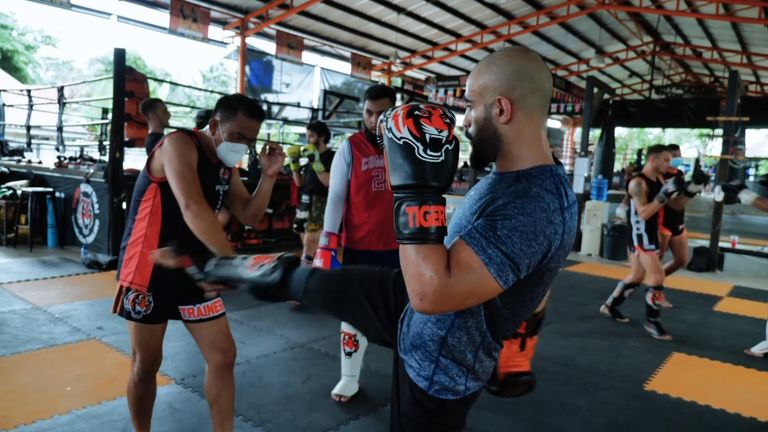
COVID-19 hit Phuket's Tiger Muaythai camp hard.
Since the pandemic, owner Viwat Sakulrat estimates his boxing school has lost around a million pounds.
When Thailand tightened its border restrictions and enforced a strict 14-day hotel quarantine, the foreign tourists dried up along with the money.
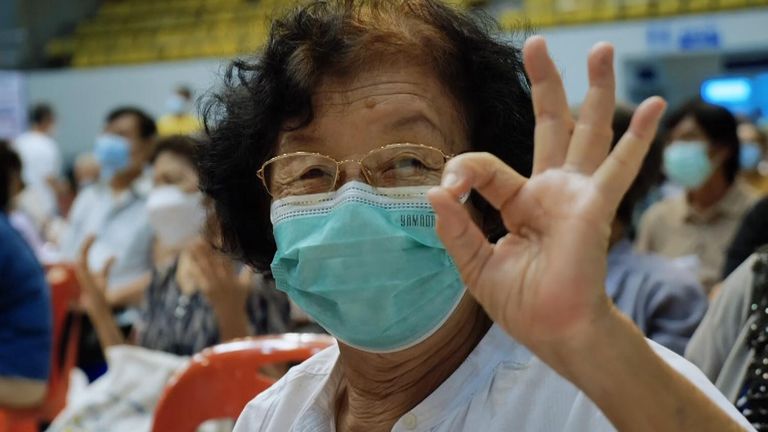
With 95% of Phuket's income linked to tourism, the island is now pushing a plan to restart the industry safely.
For it to work, 70% of people living there must be vaccinated by 1 July.
If they hit that target then the current plan is that fully vaccinated foreign tourists from low to medium risk countries will be allowed to visit the island without any quarantine.
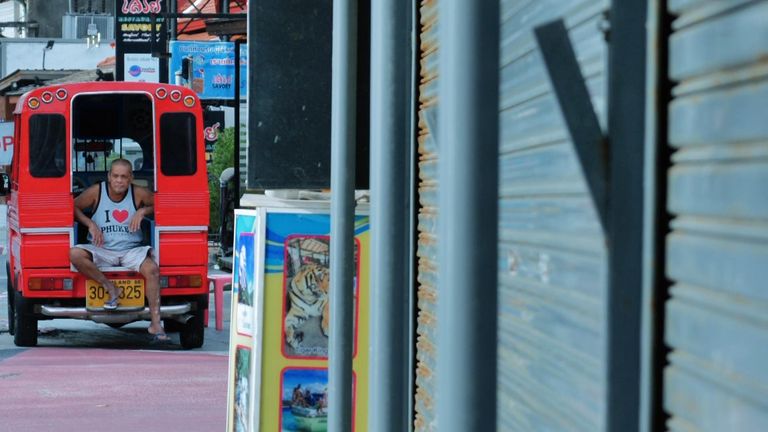
They can't leave Phuket for the first two weeks but are allowed to travel around the island as long as they're still COVID free.

More on Covid-19

See if you are eligible for free vaccines as 'tripledemic' of winter illness approaches

'Don't sit' on mpox vaccines and keep up surveillance, WHO's Europe chief says

Are we seeing a summer COVID wave and what are the FLiRT variants?
Related Topics:
- Coronavirus
The hope is they'll pump money back into struggling local businesses.
Mr Sakulrat says his staff can't wait: "All of them are very excited because at least they have some kind of protection from COVID…it's like a new life for them.
"They have been staying home for the last two years but now I think they'll be back to work again, back to the regular life again," he says.
"It will make a big difference because on this island [and] all over this province we rely on the tourism and without the customers from overseas, it's a ghost town."
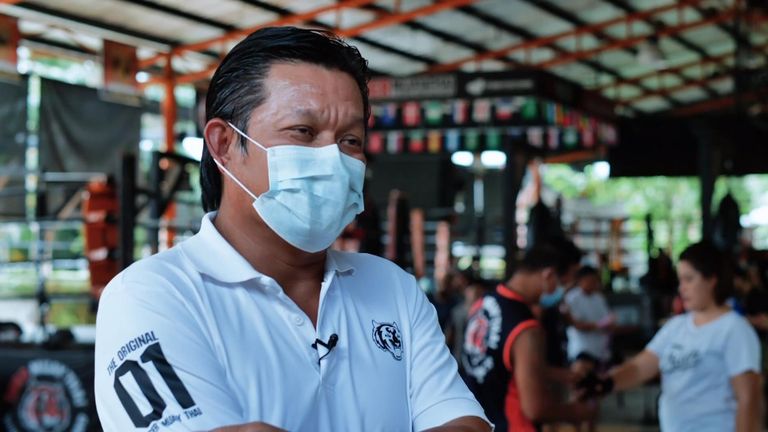
Phuket is Thailand's biggest island and the most visited destination outside Bangkok.
But now, even the usually bustling streets of the tourist hub, Patong, are quiet.
COVID-19 meant just under seven million foreign tourists visited Thailand last year compared to almost 40 million in 2019, according to figures from the Ministry of Tourism and Sports. Phuket's plan still needs a final sign off but if the bubble is a success it could be a model for other resorts worldwide.
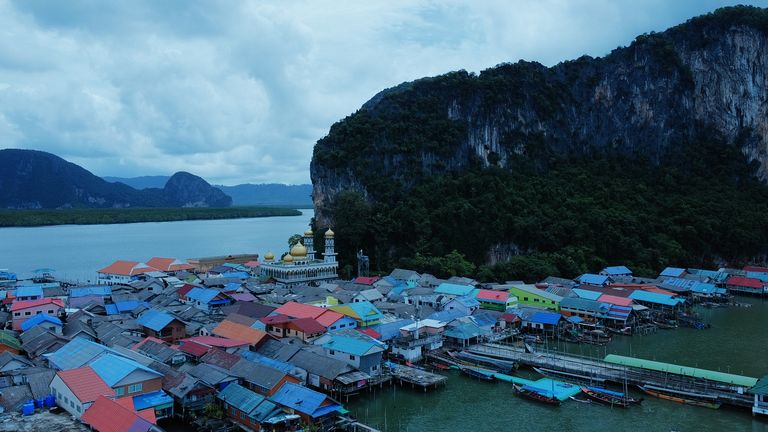
"COVID disconnecting tourists from us, that hit the daily life of the people. [There are] no jobs, no employment, no income, and no hope," explains Bhummikitti Ruktaengam, president of Phuket Tourist Association.
"So the reopening gives us hope to get back to life once again and we don't expect a huge demand at the beginning."
Thailand has administered more than seven million COVID jabs since February and began mass immunisations earlier this month.
The country has so far been using Sinovac and an AstraZeneca vaccine made locally in partnership with a royal-owned Thai firm.
Thailand's health minister on Friday said 10 million AstraZeneca doses would be received monthly from July until they met their quota.
It follows manufacturing delays with the locally made formula which have also impacted Malaysia, the Philippines and Taiwan.
On the nearby island of Koh Panyee, the reboot can't come soon enough.
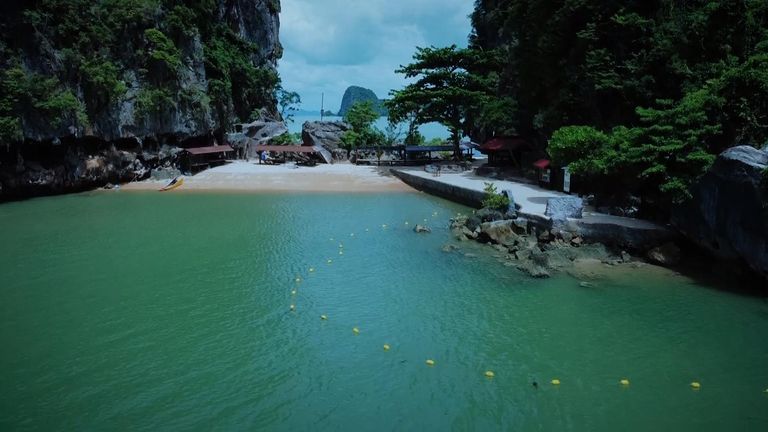
The majority of businesses are closed.
Day-trippers from Phuket helped keep the whole community afloat.
"Before the COVID situation, Koh Panyee had 5,000 to 6,000 visitors per day....now it's zero. Because the tourists can't come, people's income has fallen. There is zero income, only expenses," says Muhammad Prasanpann, the village's headman.
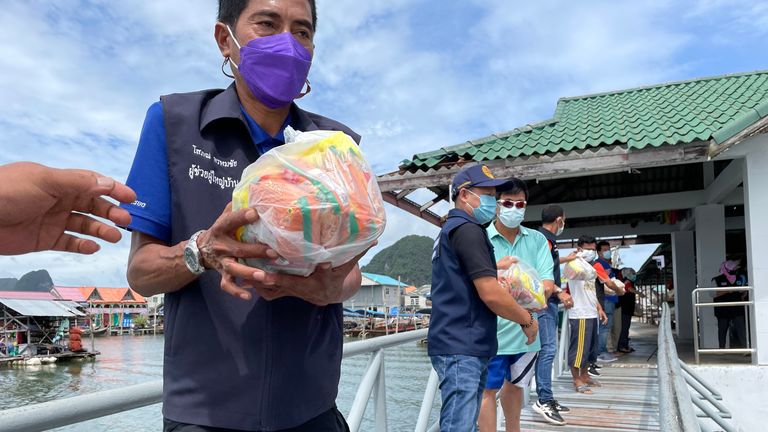
The people on Koh Panyee are now getting their vaccinations in the hope they can follow Phuket's lead and reopen to vaccinated foreign tourists in August.
As people wait for the holidaymakers to return, local businesses are donating food to struggling families.
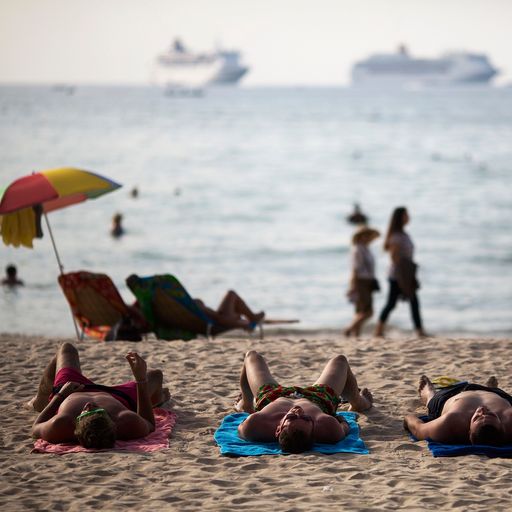
"How will you know if Phuket's plan has worked?" I ask Shaun Stenning, the owner of 5 Star Marine, one of the companies handing out food. "When I can stop handing out these life bags," he replies. Phuket's grand reopening cannot afford to fail.
Follow the Daily podcast on Apple Podcasts, Google Podcasts, Spotify, Spreaker
Related Topics

Search Smartraveller

Latest update
Exercise a high degree of caution in Thailand overall due to security and safety risks.
Higher levels apply in some areas.
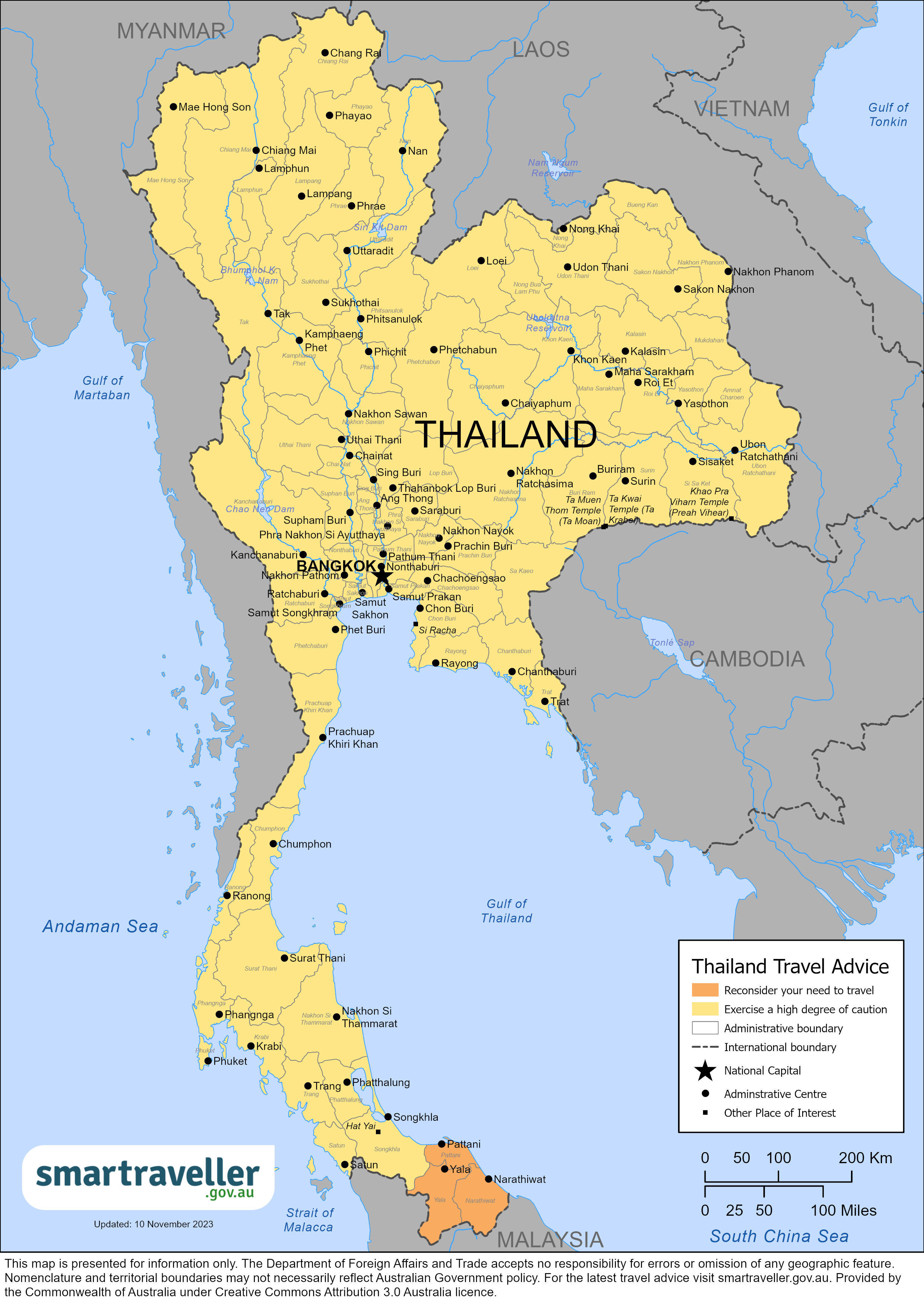
Thailand (PDF 998.61 KB)
Asia (PDF 2.29 MB)
Local emergency contacts
Fire and rescue services, medical emergencies.
Call 1669 for medical emergencies and rescue services.
Call 1724 for an ambulance in Bangkok. 1669 Nationwide.
Call 191 for police.
Call 1155 for the tourist police.
Advice levels
Exercise a high degree of caution in Thailand overall due to security and safety risks.
Reconsider your need to travel to Yala, Pattani and Narathiwat provinces.
Reconsider your need to travel to:
- Yala province,
- Pattani province, and
- Narathiwat province
due to ongoing risks of low-level insurgent activity, including terrorism.
See Safety .
- Road accidents are a significant cause of injury. Be alert at all times on the roads.
- Floods and severe weather can disrupt essential services during the wet season (June to November). Follow the advice of local officials.
- Scams, credit card fraud and ATM fraud are common.
- Sexual assault, assault, robbery and drink spiking can happen to tourists. Never leave your drink unattended. Stay with people you trust at parties, in bars, nightclubs and taxis.
- Anti-government protests have previously occurred in Bangkok and other areas of Thailand. The security environment can be unpredictable and turn violent. Those attending protests can face arrest or other legal consequences. Monitor local media for information on protest locations and avoid public gatherings. Take official warnings seriously and follow the advice of local authorities.
- There's an ongoing risk of terrorist attack in Thailand. Popular tourist areas may be the target of terrorist attacks. Thai authorities have warned of possible bombings on symbolic dates or holidays. Be alert to possible threats. Take official warnings seriously and follow the advice of local authorities.
- Reconsider your need to travel to the 3 most southern provinces of the Thailand-Malaysia border: Yala, Pattani and Narathiwat. Low-level insurgent activity continues to occur in these areas.
- Border areas near Cambodia, Myanmar and Malaysia are dangerous due to violence, armed conflict and landmines. Pay close attention to your personal security.
Full travel advice: Safety
- Travellers have been arrested for carrying medicine they bought at a Thai pharmacy without a prescription. Get medical advice before buying medicine.
- Insect-borne diseases include malaria, Zika virus, dengue, chikungunya, Japanese encephalitis and filariasis. Use insect repellent. Ensure your accommodation is insect-proof as possible.
- Animals in parts of Thailand can carry rabies. Don't ever feed, pat or tease monkeys. If you're bitten or scratched by a dog, monkey or other animal, get treatment immediately.
- Thailand has high levels of air pollution. Air pollution can make bronchial, sinus or asthma conditions worse. Check air quality levels on the World Air Quality Index .
- Medical tourism is common. Avoid discount and uncertified medical establishments. Their standards can be poor. Research medical service providers and choose with care.
Full travel advice: Health
- Penalties for drug offences are severe. They include the death penalty.
- Commercial surrogacy is illegal. E-cigarettes, e-baraku, vaporisers and refills are illegal. Smoking on some beaches is illegal. Travel without carrying identification is illegal.
- Penalties for breaking the law can apply to anyone aged under 18 years. Penalties for children can include detention in a juvenile or adult prison.
- Thailand has the death penalty for serious crimes, including murder, attempted murder and rape. Crimes against the state and offences against the monarchy can also attract the death penalty. Take care not to cause offence about the monarchy, including on social media.
Full travel advice: Local laws
You can get a visa exemption for up to 60 days on arrival (restricted to 2 entries per calendar year when entering by land or sea). The visa exemption is for tourism only. If your travel is not for tourism, contact the nearest Royal Thai Embassy or Consulate-General to apply for the appropriate visa.
- If you overstay your visa, you'll need to pay a fine before you can leave. You could also be banned from re-entering Thailand or arrested.
- You may be subject to biometric screening at points of entry, and restrictions may change at short notice. Check with your airline, the International Air Transport Association (IATA) or the nearest Thai Embassy for the latest information. Travellers from Yellow Fever-endemic countries and those with Mpox outbreaks must pre-register through the Thai Health Pass digital platform before checking in with the airline at the country of origin.
- You can transit between international flights in Bangkok's Suvarnabhumi Airport . Ensure that your connecting flight is booked on the same itinerary and ticket. You must remain in the transiting area in the airport.
Full travel advice: Travel
Local contacts
- The Consular Services Charter tells you what the Australian Government can and can't do to help when you're overseas.
- For consular help, contact the Australian Embassy, Bangkok , or the Australian Consulate-General, Phuket .
- To stay up to date with local information, follow the Embassy's social media accounts.
Full travel advice: Local contacts
Full advice
Civil unrest and political tension, security situation .
The security situation in Thailand can be unpredictable. Large protests have occurred in Bangkok and other areas, most recently in 2021. In previous years, large political protests and government crowd control operations have resulted in violence.
More incidents are possible.
To stay safe during periods of unrest:
- avoid demonstrations, processions and public gatherings
- follow media and other sources
- take official warnings seriously
- follow the advice of local authorities
- if you see a suspicious package, stay clear and report it to Police
More information:
- Demonstrations and civil unrest
Thailand-Cambodia border
Thailand and Cambodia have an ongoing border dispute. There's a risk of landmines and unexploded weapons near the Thai-Cambodian border area.
Be extra careful at tourist areas, including:
- the Preah Vihear temple - Khao Pra Viharn in Thailand
- the Ta Kwai temple - Ta Krabei in Cambodia
- the Ta Muen Thom temple - Ta Moan in Cambodia
Tourist attractions and border crossings in this area may close with little or no notice.
Thailand-Myanmar border
Fighting and armed theft can occur along the Thai-Myanmar border. This includes:
- fighting between the Myanmar military forces and armed groups
- clashes between Thai security forces and armed criminal groups, such as drug traffickers
Armed clashes between the Myanmar military forces and armed groups inside Myanmar may lead to border closures.
If you try to cross the border illegally, you may be detained and deported.
Bandits may target you if you travel through national parks in this border region.
If you travel to this region:
- monitor the news
- watch out for other signs of unrest
- pay close attention to your personal security
Thailand-Malaysia border
Reconsider your need to travel to or from the three most southern provinces:
Violence includes attacks and bombings, with deaths and injuries. Since 2004, over 6500 people have been killed and many more injured in these provinces.
Bombings are often coordinated to target people who respond to the first explosion.
Over the past few years, multiple coordinated explosions have occurred in the southern border provinces, and low-level insurgent activity continues.
If you travel to or stay in these provinces, you could get caught up in violence directed at others.
Attacks can happen at any time.
Terrorism is a threat worldwide.
Attacks, including bombings and shootings, are possible anytime. They can happen anywhere, including Bangkok and Phuket.
Popular tourist areas may be the target of terrorist attacks.
Thai authorities have warned of possible bombings on symbolic dates or holidays.
Possible targets for future attacks include:
- shopping malls, markets and banks
- hotels and beach resorts
- restaurants, bars and nightclubs
- schools and places of worship
- outdoor recreation events
Other targets include public buildings, public transport, airports and sea ports.
To reduce your risk of being involved in a terrorist attack:
- have a clear exit plan in case there's a security incident
- be alert to possible threats
- report suspicious activity or items to police
- monitor the media for threats
If there is an attack, leave the area as soon as it's safe. Avoid the affected area in case of secondary attacks.
Gun-related violence can occur at any time. On 3 October 2023, 3 people were killed and 4 injured in a shooting at the Siam Paragon Mall in Bangkok. On 6 October 2022, 36 people were killed in a shooting and stabbing incident in Nong Bua Lamphu province.
Sexual assault and violent crime
Travellers may experience sexual assault , other assault and robbery .
Be extra careful in tourist spots such as Khao San Road in Bangkok and the night-time entertainment zones in Bangkok, Pattaya and Phuket.
Be aware of drink-spiking. Don't drink homemade or local cocktails. They can contain narcotics or poison. You're at higher risk of sexual assault and theft if you get drugged.
Never leave your drink unattended.
Stay with people you trust at parties, in bars, nightclubs and taxis.
Get urgent medical attention if you think you or someone else has been drugged.
If you're a victim of violent crime, including rape, get immediate medical attention.
Under Thai law, courts will only accept the results of a medical examination from some government hospitals. After you've been examined by a government hospital, you can receive medical attention at a private hospital. Please contact the Australian Embassy Bangkok, Consulate-General Phuket, or Consular Emergency Centre in Canberra for assistance.
- Partying safely
Petty crime
Money and passports have been stolen from budget hotel and hostel rooms, and from bags on public transport. Thieves also target luggage stored on trains and below buses.
Bags have been snatched by thieves on motorcycles or sliced open with razor blades.
To reduce your risk of theft:
- don't leave valuables in luggage stowed under buses or away from you on trains
- be wary of motorcycles approaching from behind as you walk on the footpath
- hold bags and backpacks in front of you
Cyber security
You may be at risk of cyber-based threats during overseas travel to any country. Digital identity theft is a growing concern. Your devices and personal data can be compromised, especially if you're connecting to Wi-Fi, using or connecting to shared or public computers, or to Bluetooth.
Social media can also be risky in destinations where there are social or political tensions or laws that may seem unreasonable by Australian standards. Travellers have been arrested for things they have said on social media. Don't comment on local or political events, or the Thai monarchy on your social media.
More information:
- Cyber security when travelling overseas
Kidnapping
Kidnapping can happen anywhere, anytime, including in destinations that are typically at lower risk.
The Australian Government's longstanding policy is that it doesn't make payments or concessions to kidnappers.
- Kidnapping
Tours and adventure activities
Transport and tour operators don't always follow safety and maintenance standards. This includes for:
- water sports, such as scuba diving
- adventure activities, such as bungee jumping, zip lining and rock climbing
- animal attractions, including elephant safaris
If you plan to do an adventure activity :
- check if your travel insurance policy covers it
- ask the operator about and insist on minimum safety requirements
- always use available safety gear, such as life jackets or seatbelts
If proper safety equipment isn't available, use another provider.
Climate and natural disasters
Thailand experiences natural disasters and severe weather , including:
- earthquakes
Severe weather events are likely to disrupt transport, electricity and communications.
To stay safe during severe weather:
- check media and weather reports
- check in with your tour operator
- don't enter areas affected by flooding or landslides
If there is a natural disaster:
- secure your passport in a safe, waterproof place
- keep in contact with friends and family
- monitor the media and other local sources of information
- Register with the Global Disaster Alert and Coordination System to receive alerts on major disasters.
Storms and floods
Severe storms and widespread seasonal flooding can occur without warning. This includes flash floods.
The wet season in north and central Thailand is from May to October.
In Koh Samui and the south-east of the peninsula, the wet season is from November to March.
- Thai Meteorological Department
Earthquakes and tsunamis
Earthquakes occur in Thailand.
Tsunamis are more likely in Thailand because of the risk of earthquakes.
Check with the Indian Ocean Tsunami Information Center for further information.
If you're near the coast, move to high ground straight away if advised, or if you:
- feel a strong earthquake that makes it hard to stand up
- feel a weak, rolling earthquake that lasts a minute or more
- see a sudden rise or fall in sea level
- hear loud and unusual noises from the sea
Don't wait for official warnings such as alarms or sirens. Once on high ground, monitor local media.
Travel insurance
Get comprehensive travel insurance before you leave.
Your policy needs to cover all overseas medical costs, including medical evacuation. The Australian Government won't pay for these costs.
If you can't afford travel insurance, you can't afford to travel. This applies to everyone, no matter how healthy and fit you are.
If you're not insured, you may have to pay many thousands of dollars up-front for medical care.
- what activities and care your policy covers, including in terms of health and travel disruptions
- that your insurance covers you for the whole time you'll be away
Physical and mental health
Consider your physical and mental health before you travel, especially if you have an existing medical condition.
See your doctor or travel clinic to:
- have a basic health check-up
- ask if your travel plans may affect your health
- plan any vaccinations you need
Do this at least 8 weeks before you leave.
If you have immediate concerns for your welfare or the welfare of another Australian, call the 24-hour Consular Emergency Centre on +61 2 6261 3305 or contact your nearest Australian Embassy, High Commission or Consulate to discuss counselling hotlines and services available in your location.
- General health advice
- Healthy holiday tips (Healthdirect Australia)
Not all medication available over the counter or by prescription in Australia is available in other countries. Some may even be considered illegal or a controlled substance, even if prescribed by an Australian doctor.
If you plan to bring medication , check if it's legal in Thailand by contacting the Royal Thai Embassy . Take enough legal medicine for your trip.
Get medical advice before buying medicine in Thailand. Travellers have been arrested for carrying medicine they bought at a Thai pharmacy without a prescription.
Carry a copy of your prescription or a letter from your doctor stating:
- what the medication is
- your required dosage
- that it's for personal use
- Medications
Health risks
Insect-borne illnesses.
Zika virus is a risk in Thailand. If you are pregnant, defer non-essential travel to affected areas. Speak to your doctor before you travel. Several cases have been reported, including in Bangkok.
For information about Zika virus symptoms, diagnosis, treatment, and advice on how to reduce Zika virus risks, see the HealthDirect's Zika virus page . There's no vaccine for Zika virus.
Malaria is a risk throughout the year in rural areas. The worst affected areas are near the borders with Cambodia, Laos and Myanmar.
Dengue occurs in Thailand. It's common during the rainy season:
- November to March in Koh Samui and the south-east of Thailand
- May to October in the rest of Thailand, including Phuket
Dengue peaks in July and August although it is prevalent throughout the year. There's no vaccine or specific treatment for dengue.
Other insect-borne diseases include:
- chikungunya
- Japanese encephalitis
To protect yourself from disease:
- make sure your accommodation is insect-proof
- use insect repellent
- wear long, loose, light-coloured clothing
- consider taking medicine to prevent malaria
- get vaccinated against Japanese encephalitis
- Infectious diseases
Animals in parts of Thailand can carry rabies .
Rabies is deadly. Humans can get rabies from mammals, such as:
Don't ever feed, pat or tease monkeys, even if you're encouraged to.
If you're bitten or scratched by a dog, monkey or other animal, get treatment as soon as possible.
Smoke haze and air pollution
Thailand has high levels of air pollution. It can reach hazardous levels. Bangkok and Chiang Mai can be particularly bad.
Air pollution can make bronchial, sinus or asthma conditions worse.
Smoke haze is an issue across the north and north-east of Thailand from March to April.
Check air quality levels on the World Air Quality Index .
Get advice from your doctor before you travel.
Mpox (formerly known as monkeypox)
There have been reports of Mpox (formerly known as monkeypox) cases in Thailand. Maintain strict hygiene standards and avoid physical contact with infected people, animals (especially primates and rodents) and items that may have come into contact with them.
The Thai government has introduced a range of measures to limit the spread of Mpox, including, for individuals who test positive, mandatory quarantine and treatment at one of a number of hospitals equipped with negative pressure rooms.
- Mpox (Australian Government)
Medical care
Medical facilities.
The standard of medical facilities varies.
In an emergency, we recommend you contact an ambulance on:
- 1724 in Bangkok
- 1669 in all other parts of Thailand
Private hospitals in major cities have high standards of medical care. Services can be limited in other areas.
Hospitals and doctors often need to confirm your insurance before they'll treat you, even in an emergency. Otherwise, you may need to pay cash up-front. Costs can be very high.
Hospitals in Bangkok and other large cities can treat serious illnesses and accidents. In other areas, you may need to be moved to a place with better facilities. Medical evacuation can be very expensive.
Decompression chambers are located near popular dive sites in:
Medical tourism
Medical tourism , including for cosmetic and sex-change operations, is common.
Standards at discount and uncertified medical establishments can be poor. Serious and life-threatening complications can result.
Some hospitals and clinics have refused to compensate patients:
- who aren't satisfied with the results of cosmetic surgery
- who are harmed during surgery
- who die during surgery
Do your research. Choose your medical service providers with care.
Don't use discount or uncertified medical service providers.
You're subject to all local laws and penalties, including those that may appear harsh by Australian standards. Research local laws before travelling.
If you're arrested or jailed , the Australian Government will do what it can to help you under our Consular Services Charter . But we can't get you out of trouble or out of jail.
Penalties for drug offences are severe. They include the death penalty.
Possession of even small quantities of drugs for recreational purposes can lead to long jail sentences and deportation.
Thai authorities may conduct spot-checks for illegal drugs in tourist areas.
Travellers have been targeted for narcotic tests. Under Thai law, authorities have the right to demand urine samples from people suspected of taking illegal drugs.
If you're asked to submit a urine sample, ask to do it at a police station. You can also ask to contact the Tourist Police. Call 1155 for English-speaking officers.
Private recreational use of cannabis is decriminalised if the Tetrahydrocannabinol (THC) content is below 0.2% in weight. Cannabis use in public places remains illegal, and smoking outside is considered a public nuisance, and offenders risk fines and arrest. It is still illegal to sell or supply any extracts of cannabis containing more than 0.2% of THC.
While cannabis is decriminalised in Thailand, be aware of the next destination you are travelling to, where it may be illegal, including when transiting. This may include residual amounts of illicit drugs in your system (such as in your blood or saliva) or on items you are carrying.
Follow directions from local authorities.
- Carrying or using drugs
Surrogacy laws
Commercial surrogacy is illegal.
- Going overseas for international surrogacy
- Going overseas to adopt a child
E-cigarettes
E-cigarettes, e-baraku, and other related vaporisers, including refills, are prohibited. You can't import or transfer them through Thailand, even for personal use.
Producing or selling these items is illegal. You face either 10 years of imprisonment or a fine up to THB1 million, or both.
Penalties for breaking the law can be severe.
These penalties can also apply to anyone aged under 18 years who is subject to Thai juvenile judicial processes. Penalties can include detention in a juvenile or adult prison.
The death penalty can apply to:
- attempted murder
- drug offences
- crimes against the state, including treason
- some offences against the monarchy
Insulting the monarchy, or defacing images of the monarchy - including on a bank note bearing the King's image - can lead to prison terms of up to 15 years.
Take care not to cause offence when posting, commenting or liking items about the monarchy, including on social media.
In Thailand, it's illegal to:
- travel without carrying identification
- gamble - other than at a few major race tracks
- make a false statement to police, including about an insurance claim
It is also illegal to smoke on beaches in tourist areas, including:
- Prachuap Khiri Khan
- Songkhla
Australian laws
Some Australian criminal laws still apply when you're overseas. If you break these laws, you may face prosecution in Australia.
- Staying within the law and respecting customs
Dual citizenship
Thai-Australian dual nationals may be liable to complete military conscription.
If you're a dual national, contact the nearest embassy or consulate of Thailand before you travel.
- Dual nationals
Local customs
Respect local customs and take care to not offend. Deliberately ignoring local customs can cause grave offence.
Do not show the soles of your feet or touch the top of a person's head. These are insulting in Thai culture.
If in doubt, ask for local advice.
Visas and border measures
Every country or territory decides who can enter or leave through its borders. For specific information about the evidence you'll need to enter a foreign destination, check with the nearest embassy, consulate or immigration department of the destination you're entering.
Entry and exit conditions can change at short notice. Contact the nearest Embassy or consulate of Thailand, the Royal Thai Embassy Canberra or Royal Thai Consulate-General Sydney . See the official website of the Tourism Authority of Thailand for the latest details about visas, currency, customs and quarantine rules.
Visas overstays
If you overstay your visa, you'll need to pay a fine before you can leave. You can also be:
- banned from re-entering Thailand
Thai authorities can blacklist you, which means you can never return to Thailand.
Penalties for not paying the fine include long prison sentences. Conditions at Immigration Detention Centres are harsh.
- Thai Immigration Bureau
Border measures
International passengers can transit Suvarnabhumi Airport , Bangkok.
You may be subject to biometric screening at points of entry. Clarify entry requirements with your airline, International Air Transport Association (IATA) or your nearest Thai Embassy.
Travellers from Yellow Fever-endemic countries and those with Mpox outbreaks must pre-register through the Thai Health Pass digital platform before checking in with the airline at the country of origin.
Departure from Thailand
Travellers should refer to the relevant airline or travel provider for information about departing Thailand.
- Royal Thai Embassy , Canberra
Some countries won't let you enter unless your passport is valid for 6 months after you plan to leave that country. This can apply even if you're just transiting or stopping over.
Some foreign governments and airlines apply the rule inconsistently. Travellers can receive conflicting advice from different sources.
You can end up stranded if your passport is not valid for more than 6 months.
The Australian Government does not set these rules. Check your passport's expiry date before you travel. If you're not sure it'll be valid for long enough, consider getting a new passport .
Lost or stolen passport
Your passport is a valuable document. It's attractive to people who may try to use your identity to commit crimes.
Some people may try to trick you into giving them your passport. Always keep it in a safe place.
Don't give your passport to third parties - like a jet ski or motorcycle rental businesses - as a guarantee. Companies may hold on to the passport and ask for payment for damages.
If your passport is lost or stolen, tell the Australian Government as soon as possible:
- In Australia, contact the Australian Passport Information Service .
- If you're overseas, contact the nearest Australian embassy or consulate .
Passport with ‘X’ gender identifier
Although Australian passports comply with international standards for sex and gender, we can't guarantee that a passport showing 'X' in the sex field will be accepted for entry or transit by another country. Contact the nearest embassy, high commission or consulate of your destination before you arrive at the border to confirm if authorities will accept passports with 'X' gender markers.
- LGBTQIA+ travellers
The currency of Thailand is the Thai Baht (THB).
You can convert Australian dollars for THB in tourist areas, major cities and towns.
ATMs are available in cities and regional centres.
Most hotels, restaurants and higher-end shops accept international credit cards.
Card skimming occurs. See Safety
Local travel
Driver's permit.
To drive a car or motorcycle in Thailand, you'll need a valid international driving permit (IDP) and your Australian driver's licence (digital driver's licences may not be accepted) for the type of vehicle you're using. If you drive without the correct licence, you could be arrested or jailed .
To drive a motorbike, you'll need a valid motorcycle licence. Some rental companies will tell you otherwise.
Don't drive any vehicles not covered by your Australian licence. In the event of an accident, you may not be covered under insurance.
The Department of Land Transport issues Thai driver’s licences. Contact them to confirm:
- your eligibility
- what documents you need to apply
The legal driving age in Thailand is 18.
Road travel
Thailand has one of the highest traffic-related fatality rates in the world. Motorcyclists are most at risk.
Road accidents are common, including in resort areas such as Phuket, Pattaya and Koh Samui.
Driving in Thailand is dangerous due to:
- reckless passing
- ignoring traffic laws
Be extra careful during holidays, such as Songkran (Thai New Year). Alcohol use and congestion are worse during these times.
Don't drink and drive.
If you're walking, use overhead walkways. Look in both directions before crossing streets, even at marked crossways.
- Driving or riding
Motorcycles
Under Thai law, motorcycle riders and passengers must wear a helmet. However, hire companies or motorcycle taxis rarely provide helmets. You may need to shop around to hire a helmet.
Australians are regularly injured or die in motorbike accidents in Thailand. Alcohol is often involved.
If you're in an accident, police may detain or arrest you until compensation is agreed. This can often cost thousands of dollars.
Many vehicle hire companies don't have insurance.
If you have a motorcycle accident, you could be responsible for any damages, loss or costs associated with injury to others. The embassy can't help you negotiate on compensation demands.
Lawyers who can represent you are available from:
- Australian Embassy and Consulates-General in Thailand
- the Consular Emergency Centre in Canberra
If you plan to hire a motorbike, make sure:
- your insurance policy covers it
- you have a valid motorcycle licence
- the hiring company has comprehensive and third-party insurance
- you know the excess you would need to pay if you have an accident
- you always wear a helmet
Don't drink and drive, or drink and ride.
Never give your passport as a deposit or guarantee.
Taxis, tuktuks and motorcycle taxis
Official, metered taxis are generally safe and convenient. Be alert to possible scams and safety risks.
Be aware of apparently friendly taxi or tuktuk drivers who offer you cheap tours. They will take you to shops where they receive a commission. You may be overcharged or sold worthless goods or gems.
Before you get in an unmetered taxi, tuktuk or motorcycle taxi, agree on the fare and the route.
If using rideshare apps such as Grab, make sure you enter the vehicle with the same plate number and name shown in the app.
Make sure your bags are secure when you're travelling in a tuktuk or motorcycle taxi.
Never put yourself in danger by confronting a taxi, tuktuk or motorcycle taxi driver. Call the Tourist Police on 1155 if you need help.
Be careful when opening taxi doors. Look out for other vehicles, pedestrians and cyclists.
Ferry and speedboat travel can be dangerous. Serious incidents involving tourists have occurred and people have died.
If you plan on travelling by boat or ferry:
- check safety standards are in place
- check there is enough safety equipment for everyone
- wear your life jacket at all times
- avoid travelling after dark
- don't get on overcrowded boats
DFAT doesn't provide information on the safety of individual commercial airlines or flight paths.
Check Thailand's air safety profile with the Aviation Safety Network.
Emergencies
Depending on what you need, contact your:
- family and friends
- travel agent
- insurance provider
Call 1724 for an ambulance in Bangkok.
Always get a police report when you report a crime.
Your insurer should have a 24-hour emergency number.
Consular contacts
Read the Consular Services Charter for what the Australian Government can and can't do to help you overseas.
Australian Embassy, Bangkok
181 Wireless Road Lumphini, Pathumwan Bangkok, Thailand. 10330 Phone: (+66 2) 344 6300 Fax: (+66 2) 344 6593 Website: thailand.embassy.gov.au Email: [email protected] Facebook: Australia in Thailand X: @AusAmbBKK
Check the Embassy website for details about opening hours and any temporary closures.
Australian Consulate-General, Phuket
6th Floor CCM Complex 77/77 Chalermprakiat Rama 9 Road (Bypass Road) Muang Phuket, Thailand, 83000 Phone: (+66 76) 317 700 Fax: (+66 76) 317 743 Website: phuket.consulate.gov.au E-mail: [email protected]
24-hour Consular Emergency Centre
In a consular emergency, if you can't contact an embassy, call the 24-hour Consular Emergency Centre on:
- +61 2 6261 3305 from overseas
- 1300 555 135 in Australia

Travelling to Thailand?
Sign up to get the latest travel advice updates..
Be the first to know official government advice when travelling.
Cookies on GOV.UK
We use some essential cookies to make this website work.
We’d like to set additional cookies to understand how you use GOV.UK, remember your settings and improve government services.
We also use cookies set by other sites to help us deliver content from their services.
You have accepted additional cookies. You can change your cookie settings at any time.
You have rejected additional cookies. You can change your cookie settings at any time.
Warnings and insurance
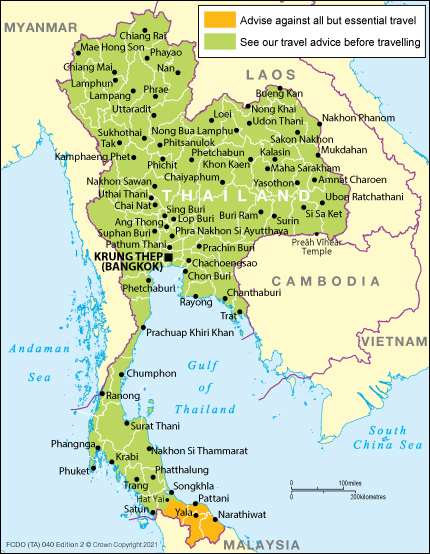
Your travel insurance could be invalidated if you travel against advice from the Foreign, Commonwealth & Development Office (FCDO).
Areas where FCDO advises against all but essential travel
FCDO advises against all but essential travel to parts of the south, near the Thailand-Malaysia border:
- Pattani Province
- Yala Province
- Narathiwat Province
- southern Songkhla Province – south of the A43 road between Hat Yai and Sakom, and south of the train line which runs between Hat Yai and Padang Besar
FCDO also advises against all but essential travel on the Hat Yai to Padang Besar train line that runs through these provinces.
This is due to regular terrorist attacks in the provinces by the border with Malaysia.
Find out more about why FCDO advises against travel .
Heavy rains and flooding in Thailand
Thailand is currently facing heavy rains and flooding in parts of the country, including widespread flooding in northern Thailand. Local authorities have issued warnings related to areas near the Ping River, including in central Chiang Mai. Remain vigilant and follow the advice of local authorities.
Before you travel
No travel can be guaranteed safe. Read all the advice in this guide. You may also find it helpful to:
- see general advice for women travellers
- read our guide on disability and travel abroad
- see general advice for LGBT+ travellers
- read about safety for solo and independent travel
- see advice on volunteering and adventure travel abroad
Travel insurance
If you choose to travel, research your destinations and get appropriate travel insurance . Insurance should cover your itinerary, planned activities and expenses in an emergency.
About FCDO travel advice
FCDO provides advice about risks of travel to help you make informed decisions. Find out more about FCDO travel advice .
Follow and contact FCDO travel on Twitter , Facebook and Instagram . You can also sign up to get email notifications when this advice is updated.
Related content
Is this page useful.
- Yes this page is useful
- No this page is not useful
Help us improve GOV.UK
Don’t include personal or financial information like your National Insurance number or credit card details.
To help us improve GOV.UK, we’d like to know more about your visit today. Please fill in this survey (opens in a new tab) .

IMAGES
VIDEO
COMMENTS
All international travelers should be fully vaccinated against measles with the measles-mumps-rubella (MMR) vaccine, including an early dose for infants 6-11 months, according to CDC's measles vaccination recommendations for international travel. Dogs infected with rabies are sometimes found in Thailand.
Emergency After-Hours Telephone: + (66) (2) 205-4000, 02-205-4000 (within Thailand) Fax: + (66) (2) 205-4103, 02-205-4103 (within Thailand) If you have any questions about traveling to Thailand or are wondering what shots you may need for your trip, schedule an appointment with your local Passport Health travel medicine clinic. Call us at.
What Travel Vaccines Do I Need For Thailand? - Story and details thanks to Dr Deb - The Travel Doctor - Ph: (07) 3221 9066 | [email protected] ... Phuket or Koh Samui. Mosquito avoidance must be practiced diligently as there are other diseases such as Dengue that are reasonably common and very unpleasant.
It seats 18,000 and cost over $2B to build. See Vegas' new venue lighting up the skyline. For the first time in over 15 months, Thailand's popular resort island of Phuket is allowing vaccinated ...
PHUKET: The Tourism Authority of Thailand (TAT) has announced a full list of the requirements for vaccinated international arrivals to enter Phuket under the reduced quarantine measures which came int
At least 8 weeks before your trip: check the latest information on vaccinations and health risks in TravelHealthPro's Thailand guide. see where to get vaccines and whether you have to pay on the ...
PHUKET: The Civil Aviation Authority of Thailand (CAAT) has issued a list confirming which vaccines are recognised by the Royal Thai Government under the reinstituted COVID-19 measures to come into ef
During 7 days in Phuket, the travellers must take 2 RT-PCR tests (first test upon arrival at the airport; second test on day 6-7) 1.6 Must stay in Phuket for no less than 7 days before travelling to other provinces in Thailand. 1.7 For travellers staying in Phuket less than 7 days, they must leave Thailand via Phuket only. 2.
The Tourism Authority of Thailand (TAT) has confirmed that vaccinated travelers from low-risk countries will be permitted to fly direct to the Thai island without having to quarantine from July 1 ...
Those who test negative can freely travel around Phuket, and after 14 days, to other parts of Thailand, provided they practice social distancing, submit to temperature checks and wear masks ...
The first flight of international tourists arrived into Phuket today under the Sandbox model. As per the program's conditions, fully vaccinated visitors from "low- or medium-risk" countries are permitted to enter Phuket without quarantine. The Thailand Tourism Authority (TAT) says arrivals must be fully vaccinated, and must have tested negative ...
What vaccinations do I need for Thailand? Check the Foreign, Commonwealth and Development Office (FCDO) travel advice for Thailand, which includes entry requirements such as vaccinations. It's recommended that travellers to Thailand have jabs for tetanus and hepatitis A, possibly for yellow fever too, and they should also take additional precautions depending on which regions they're ...
Call us in Washington, D.C. at 1-888-407-4747 (toll-free in the United States and Canada) or 1-202-501-4444 (from all other countries) from 8:00 a.m. to 8:00 p.m., Eastern Standard Time, Monday through Friday (except U.S. federal holidays). See the State Department's travel website for the Worldwide Caution and Travel Advisories.
Recommended Vaccinations for Thailand Travel. Hepatitis A; Japanese encephalitis; Meningitis; Rabies* Typhoid *Rabies vaccination is typically only recommended for very high risk travelers given that it is completely preventable if medical attention is received within 7 - 10 days of an animal bite.
To prepare for Phuket's reopening, the Thai government began funneling vaccines to the island this year. Even so, less than 45 percent of people in Phuket have been fully vaccinated, according ...
With the Thai government planning to allow vaccinated tourists to visit the resort island of Phuket without quarantine restrictions from July 1, many are hopeful international travelers will soon ...
Thailand, a geographically diverse country a little smaller than the state of Texas (see Map 10-14), is a popular destination for tourists, offering beaches, a wide range of cultures and cuisine, eco-adventure opportunities, nightlife, and shopping. Thailand is also a regional business hub. In 2019, ≈40 million visitors spent >1 night in ...
Thailand plans to reopen the resort island of Phuket to vaccinated foreign tourists July 1. It's a bid to jump start an economy and a tourist industry battered by the pandemic. Will foreigners come?
Thailand: 'Ghost town' Phuket steps up COVID vaccinations to reopen to tourists. In Phuket, 95% of income is linked to tourism and it was lost when Thailand tightened its borders and enforced ...
To enter Thailand, your passport must have an 'expiry date' at least 6 months after the date you arrive and have at least 1 blank page. Check with your travel provider that your passport and ...
Vaccine Recommendations. Details of vaccination recommendations and requirements are provided below. All travellers. Travellers should be up to date with routine vaccination courses and boosters as recommended in the UK.These vaccinations include for example measles-mumps-rubella (MMR) vaccine and diphtheria-tetanus-polio vaccine.. Country-specific diphtheria recommendations are not provided here.
plan any vaccinations you need Do this at least 8 weeks before you leave. If you have immediate concerns for your welfare or the welfare of another Australian, call the 24-hour Consular Emergency Centre on +61 2 6261 3305 or contact your nearest Australian Embassy, High Commission or Consulate to discuss counselling hotlines and services ...
FCDO advises against all but essential travel to parts of the south, near the Thailand-Malaysia border: FCDO also advises against all but essential travel on the Hat Yai to Padang Besar train line ...